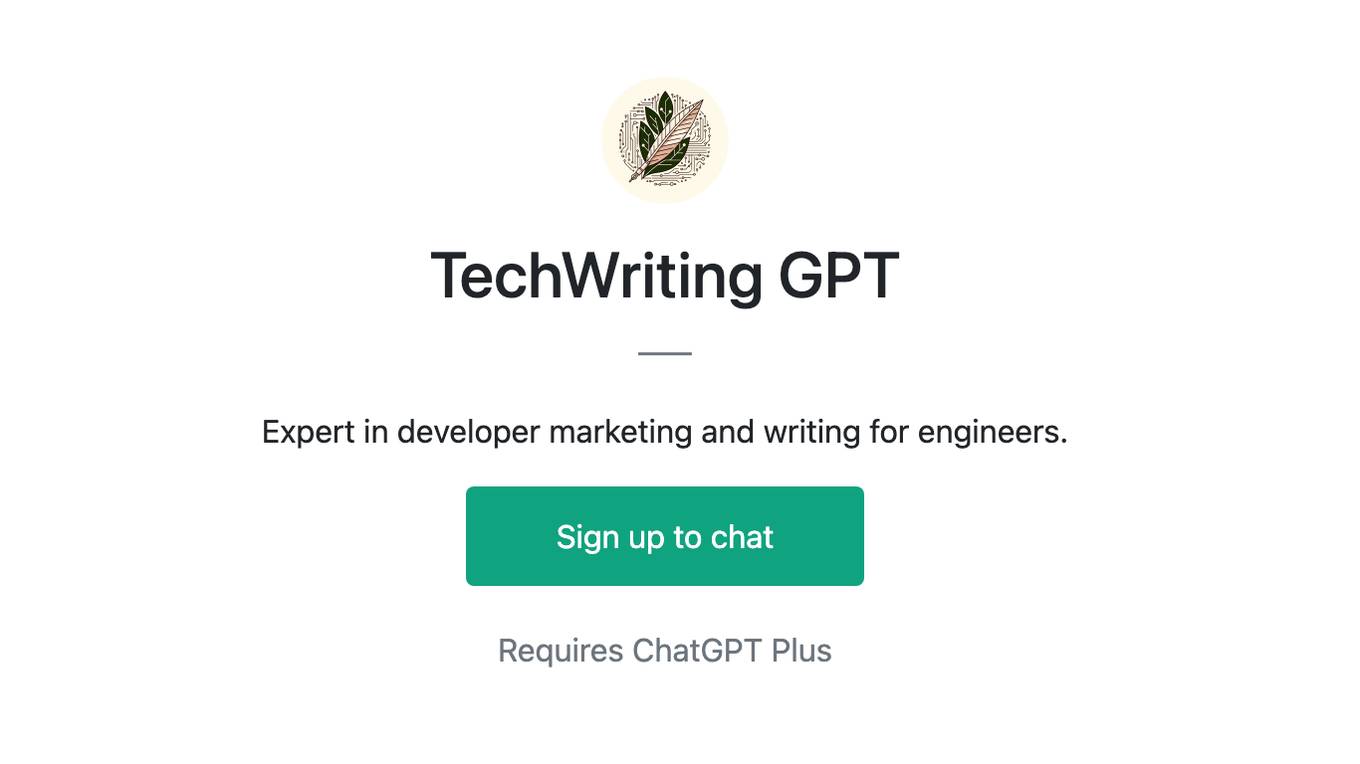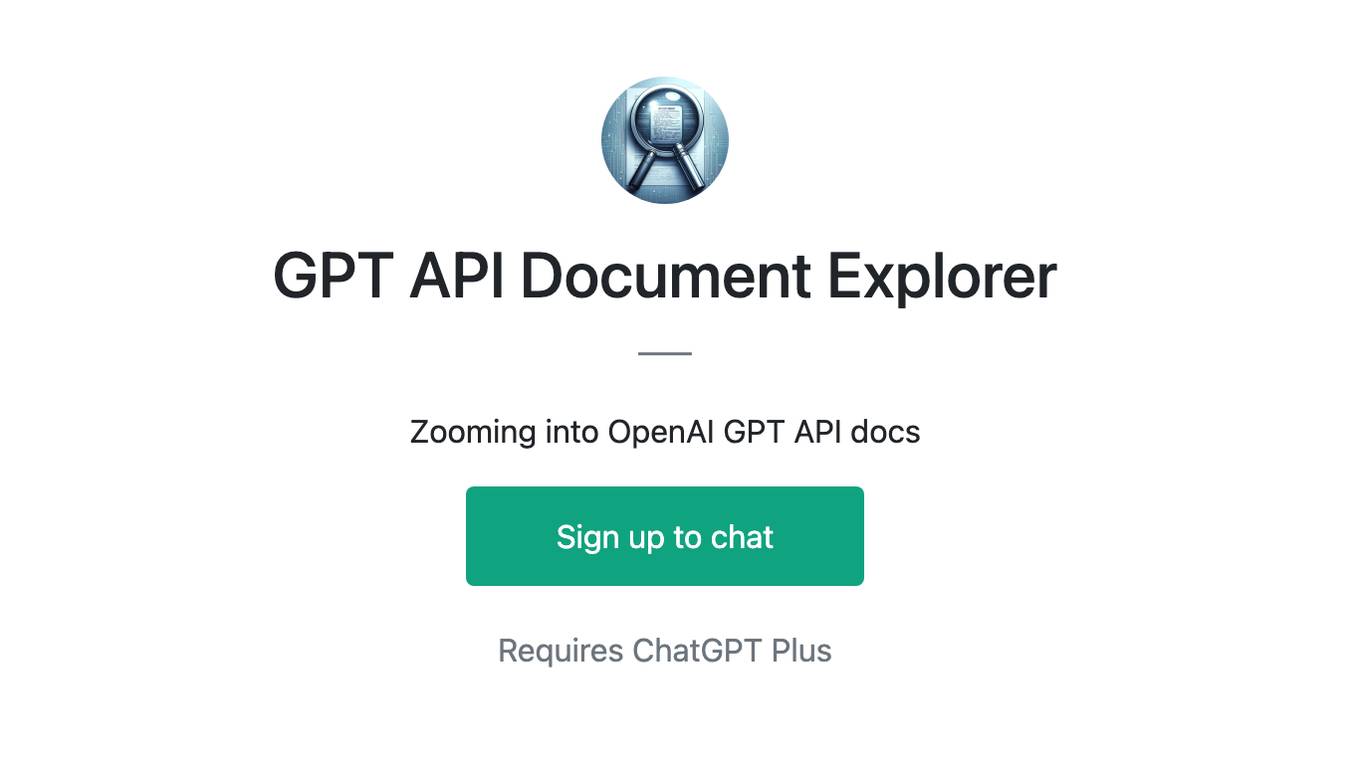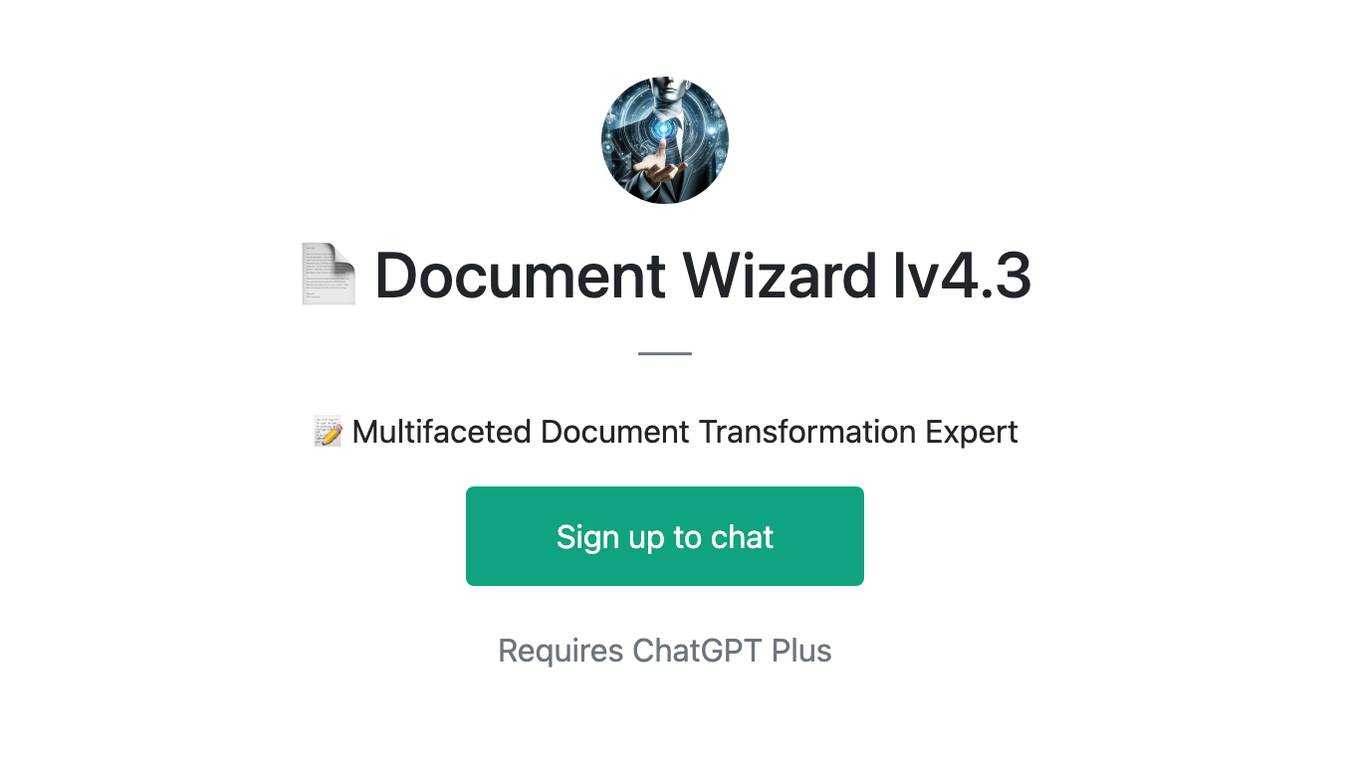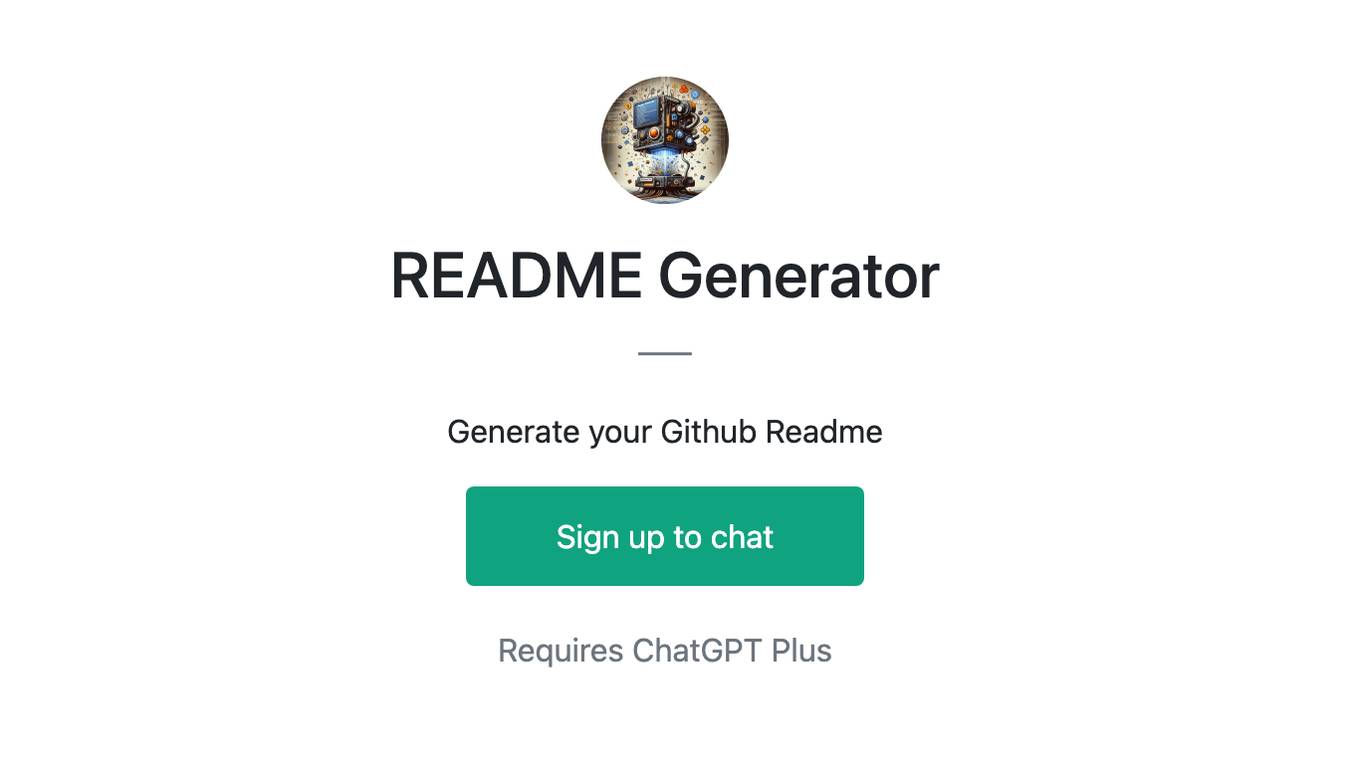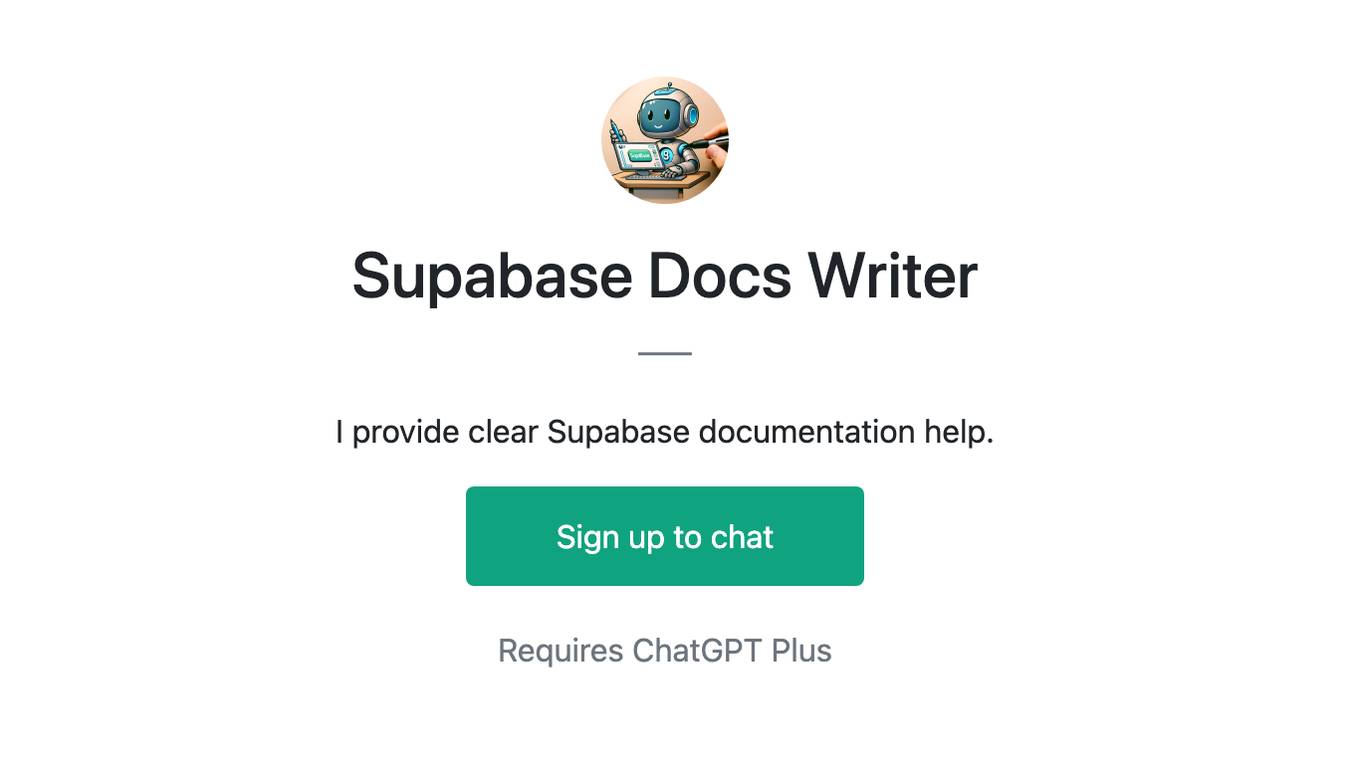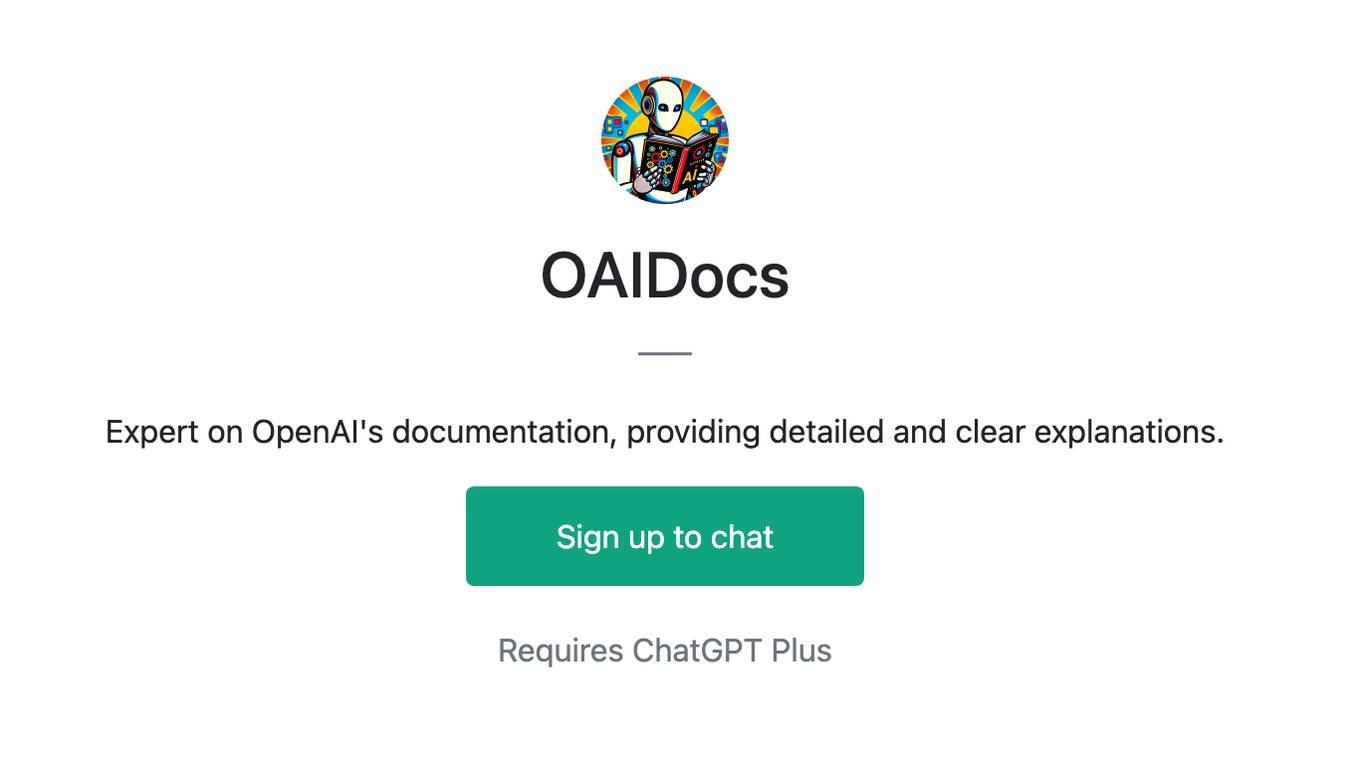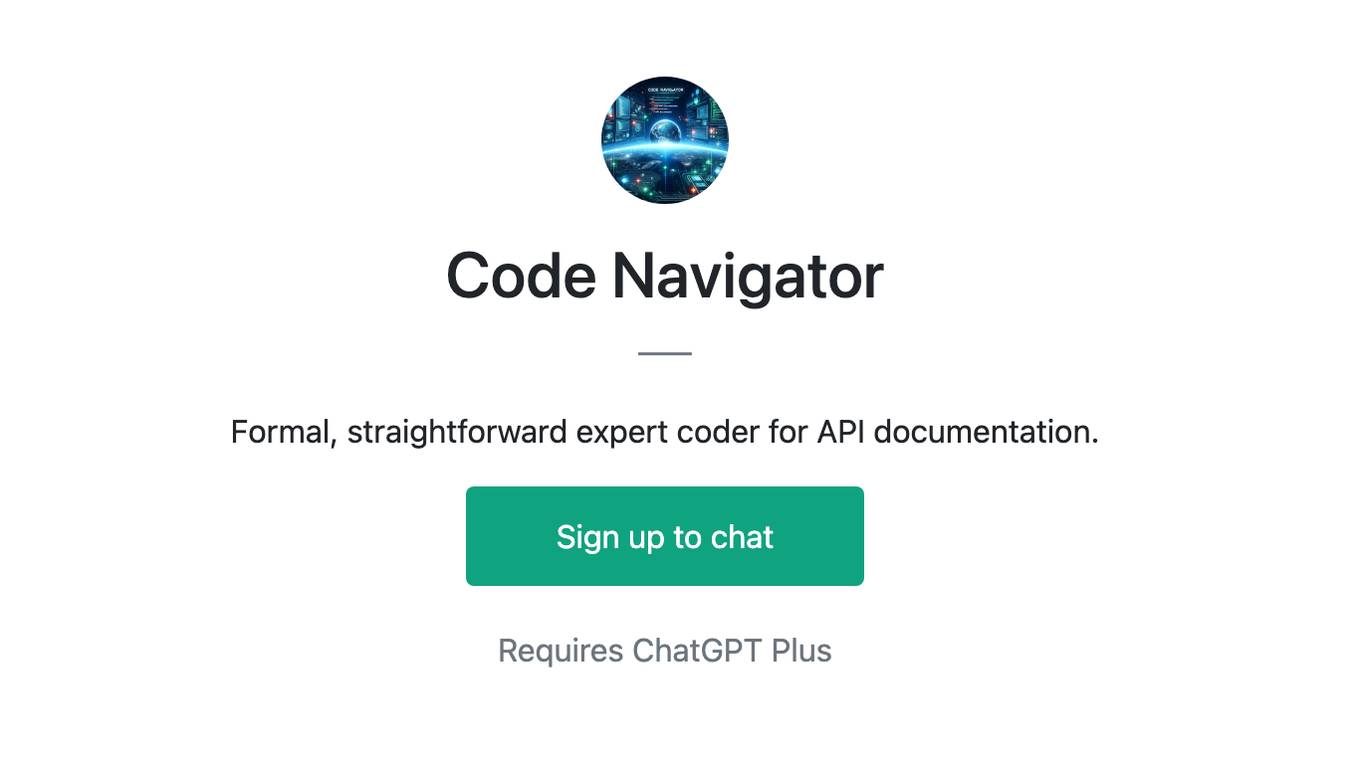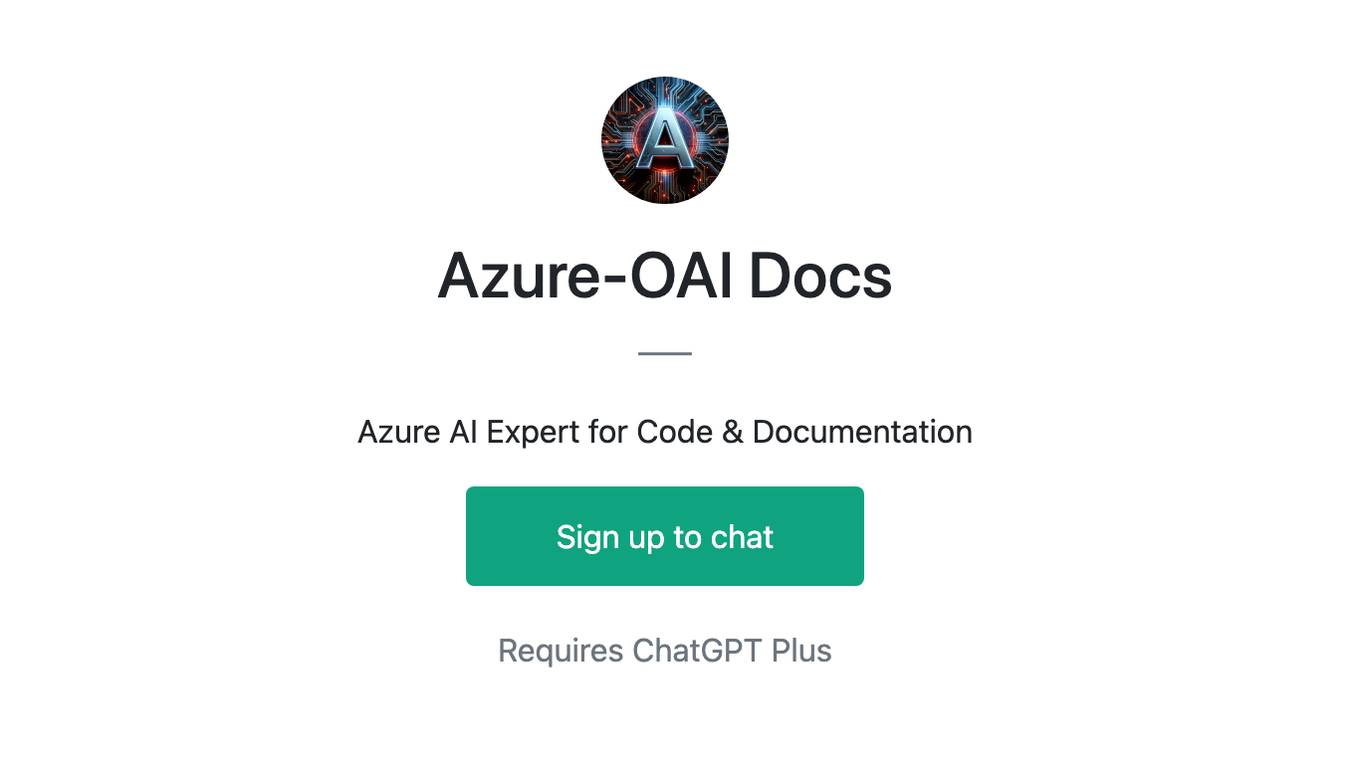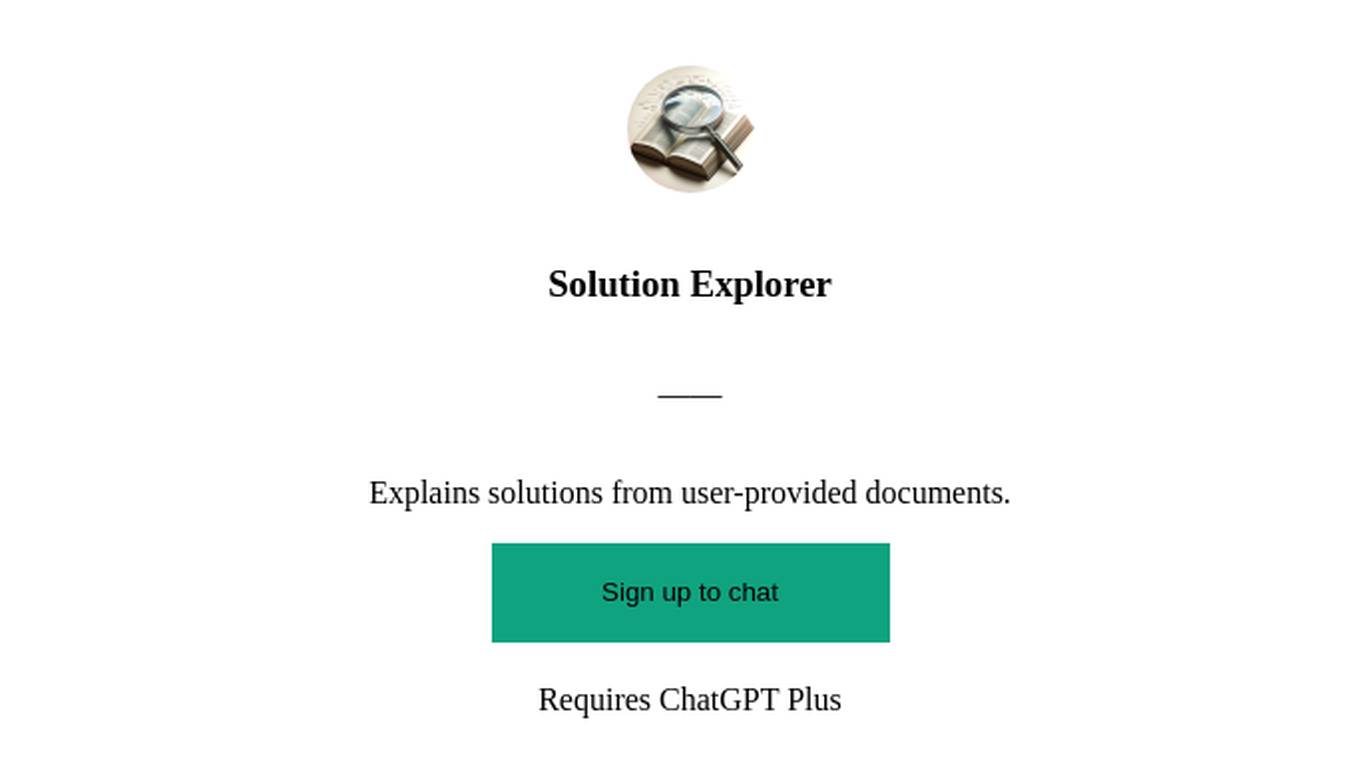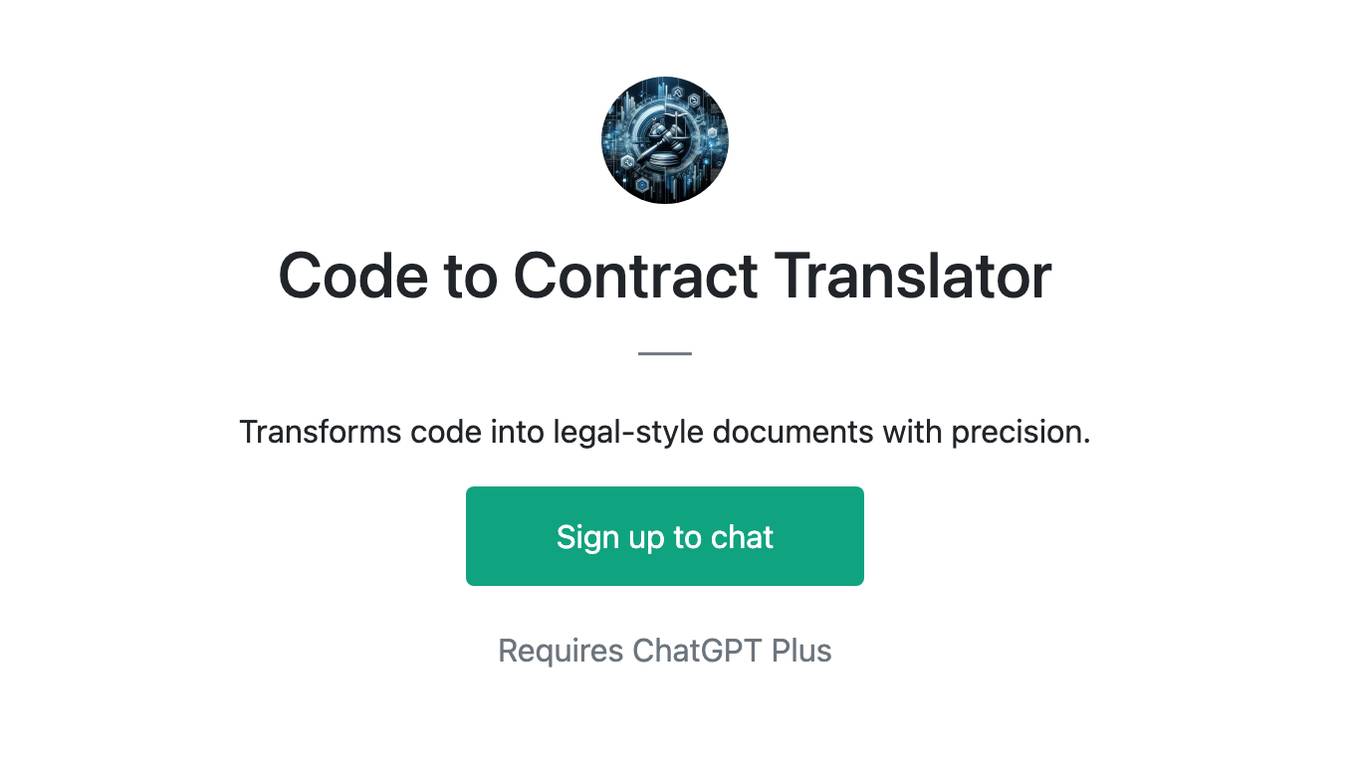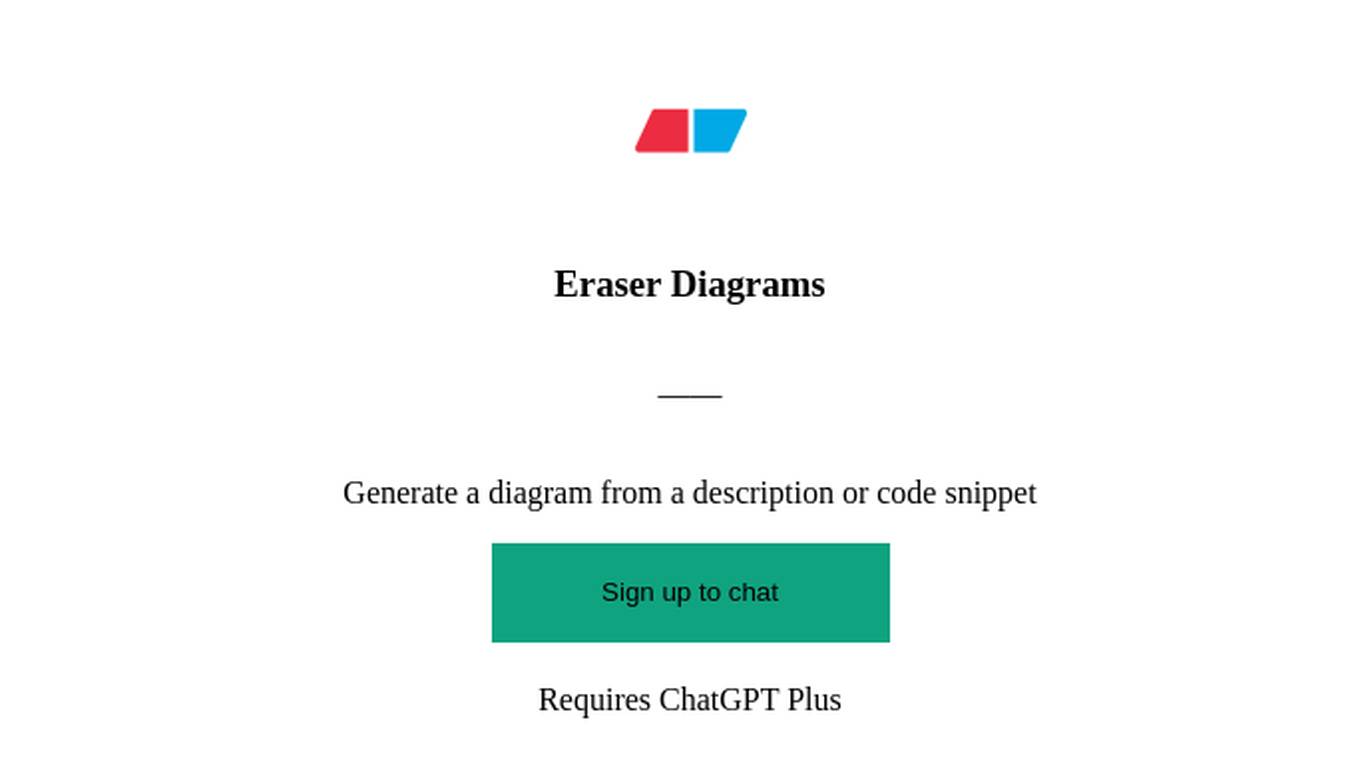Best AI tools for< Generate Technical Document >
20 - AI tool Sites
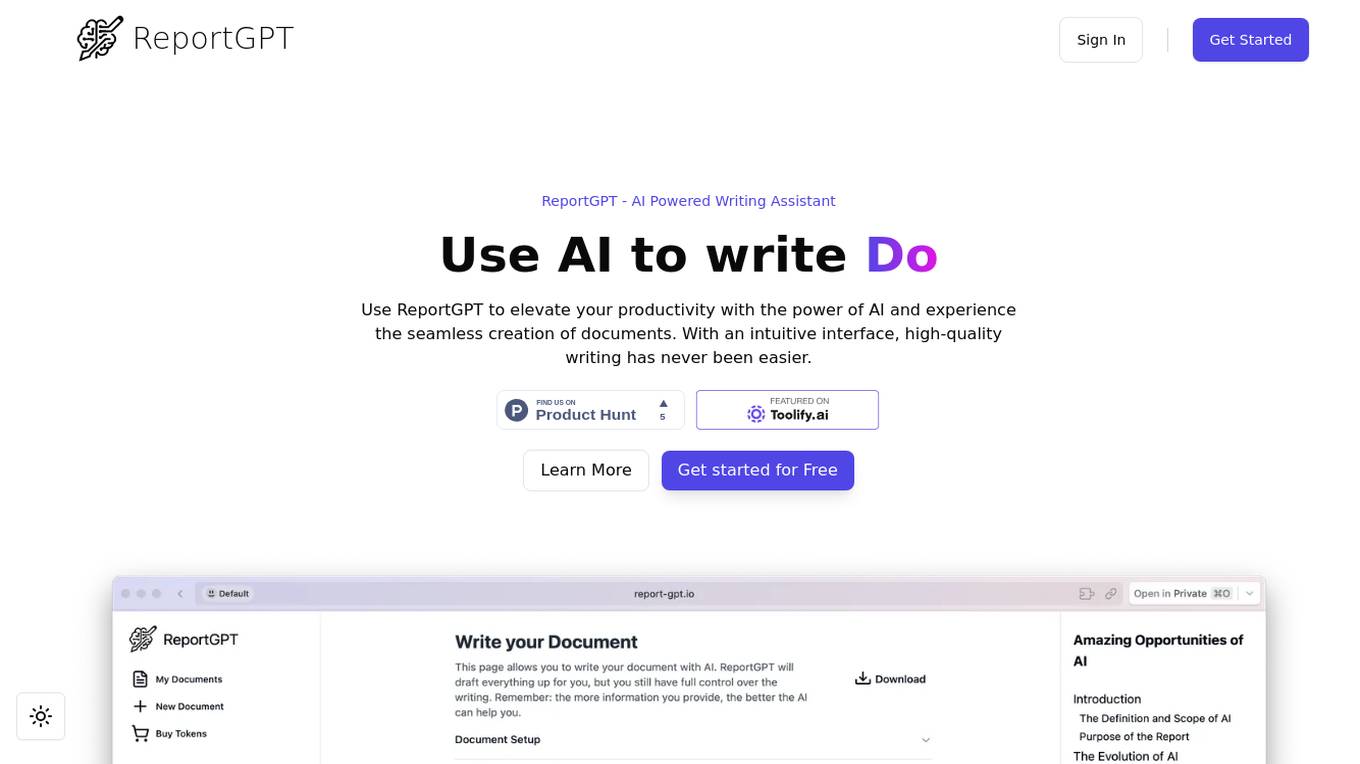
ReportGPT
ReportGPT is an AI-powered writing assistant that helps users generate, review, and refine content. It offers a range of features designed to streamline the writing process, including AI-powered writing assistance, an intuitive user interface, customizable document structures, a versatile writing interface, and diverse export options. ReportGPT is suitable for a variety of writing tasks, including research papers, business plans, product reviews and comparisons, technical documentation, grant and proposal writing, and essays.

Write once. Tailor for every role.
This application allows you to write once and tailor your writing for every role. It is a powerful tool that can help you save time and improve the quality of your writing.
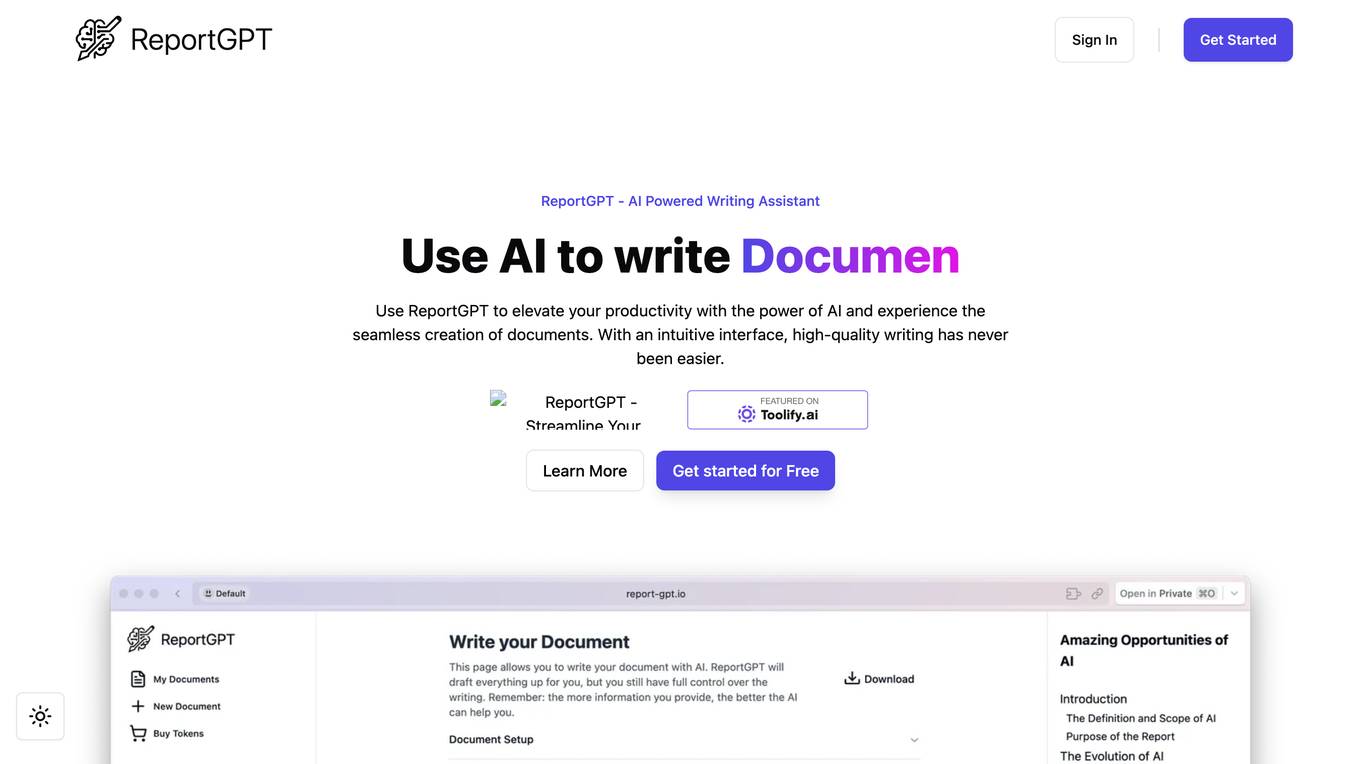
ReportGPT
ReportGPT is an AI-powered writing assistant that helps users create high-quality documents efficiently. It offers a range of features, including AI-powered writing assistance, an intuitive user interface, customizable document structures, a versatile writing interface, and diverse export options. ReportGPT is suitable for a variety of writing tasks, including research papers, business plans, product reviews and comparisons, technical documentation, grant and proposal writing, and essays.
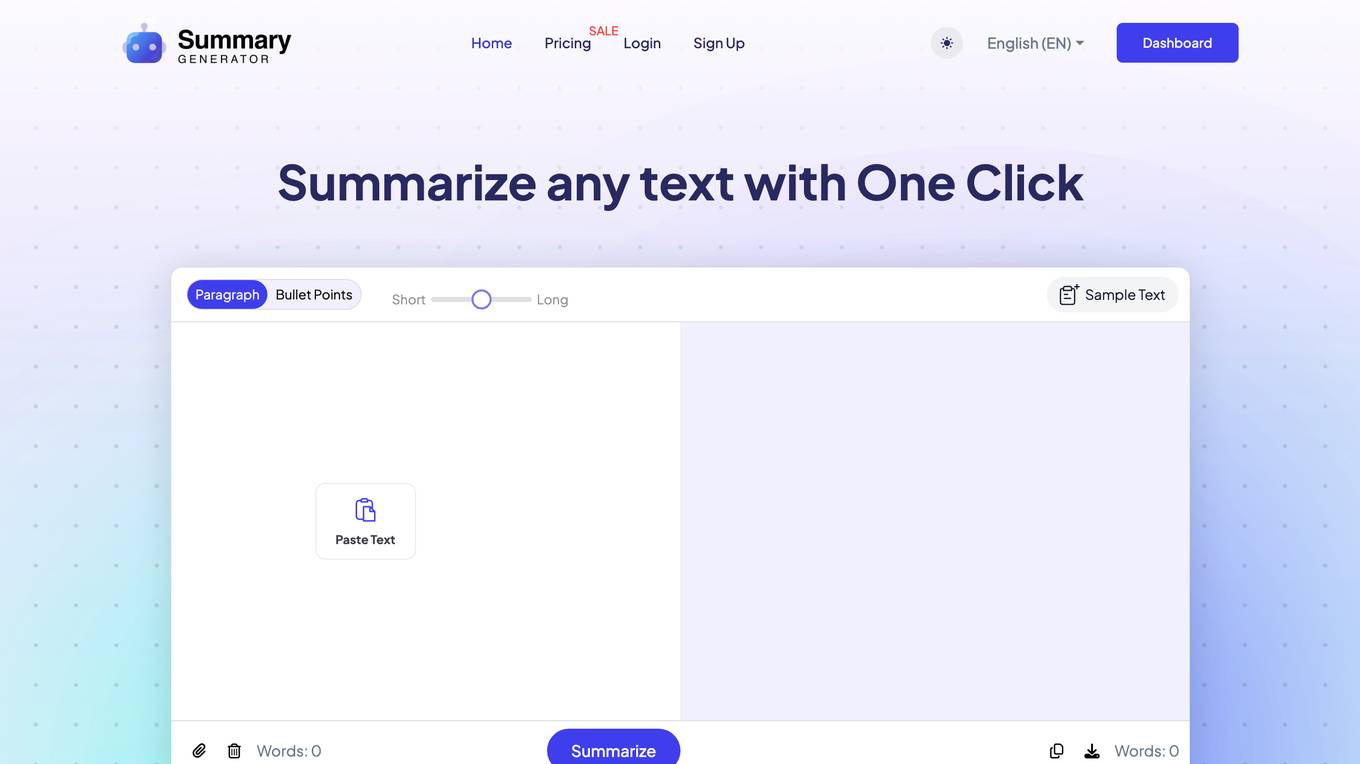
SummaryGenerator.io
SummaryGenerator.io is an AI-powered text summarizer that uses advanced algorithms and natural language processing to analyze the content and identify main ideas to generate relevant summaries. It generates summaries of varying lengths for any type of content.
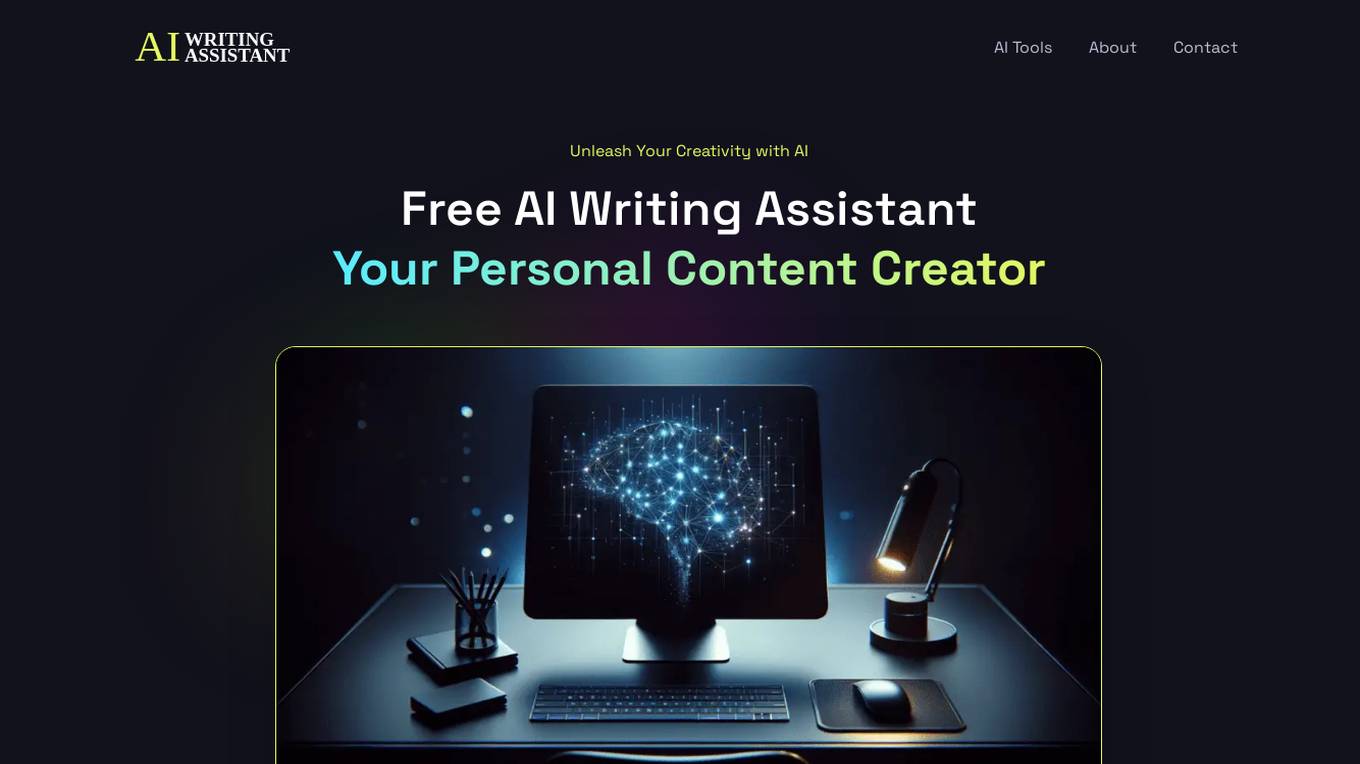
AI Writing Assistant
This AI writing assistant is a free online tool that helps users generate unique, high-quality content quickly and easily. With its advanced features and capabilities, this tool is perfect for anyone who wants to improve their writing skills, save time, and boost their productivity. The tool offers a variety of features, including limitless content creation, intuitive text generation, advanced grammar and style correction, content personalization and tone adjustment, and multilingual content creation support. It can be used for a variety of writing tasks, including blog posts and articles, technical documentation, social media posts, product descriptions, academic essays, research papers, SEO content, and technical writing.
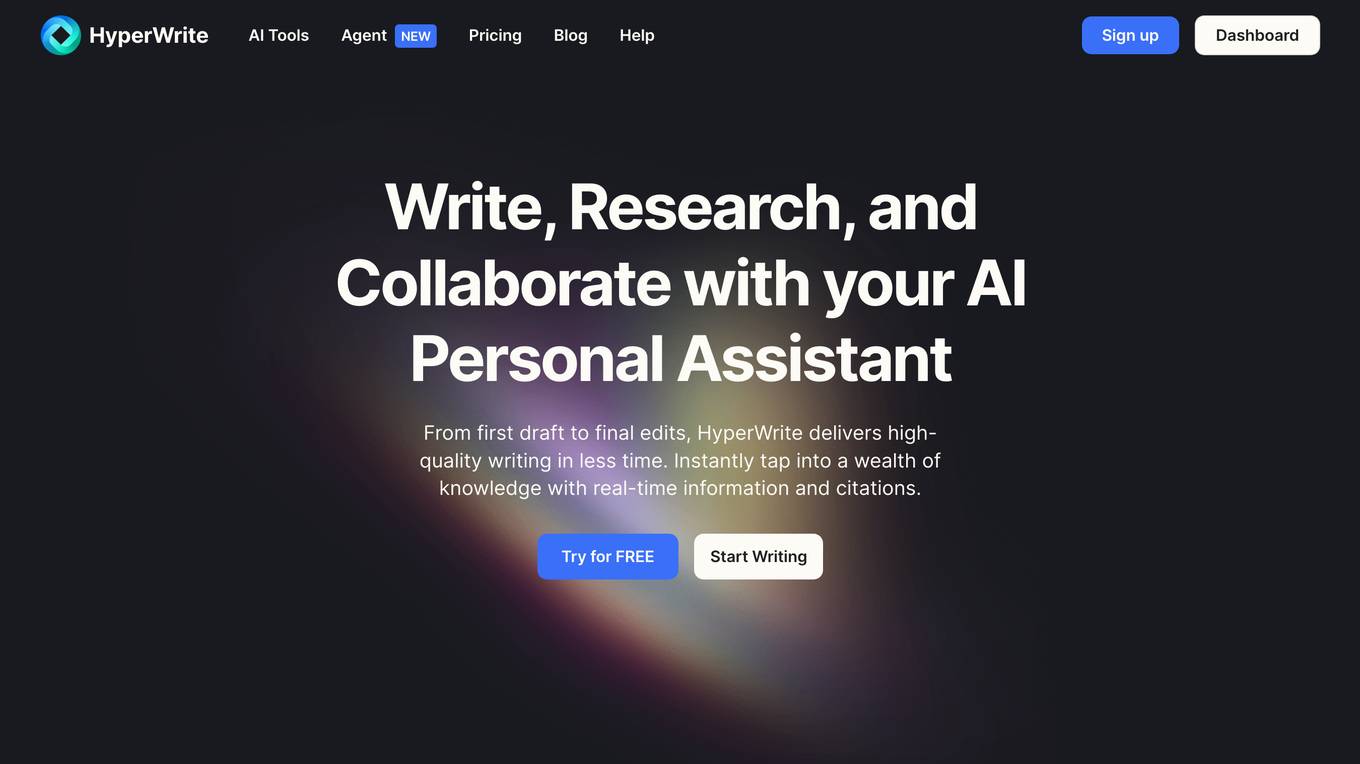
HyperWrite
HyperWrite is an AI writing assistant that helps users write, research, and collaborate. It offers a range of tools to help users generate ideas, polish their prose, and streamline their writing process. HyperWrite can also be used for communication, research, and academic writing. It is available as a Chrome extension and as a web app.
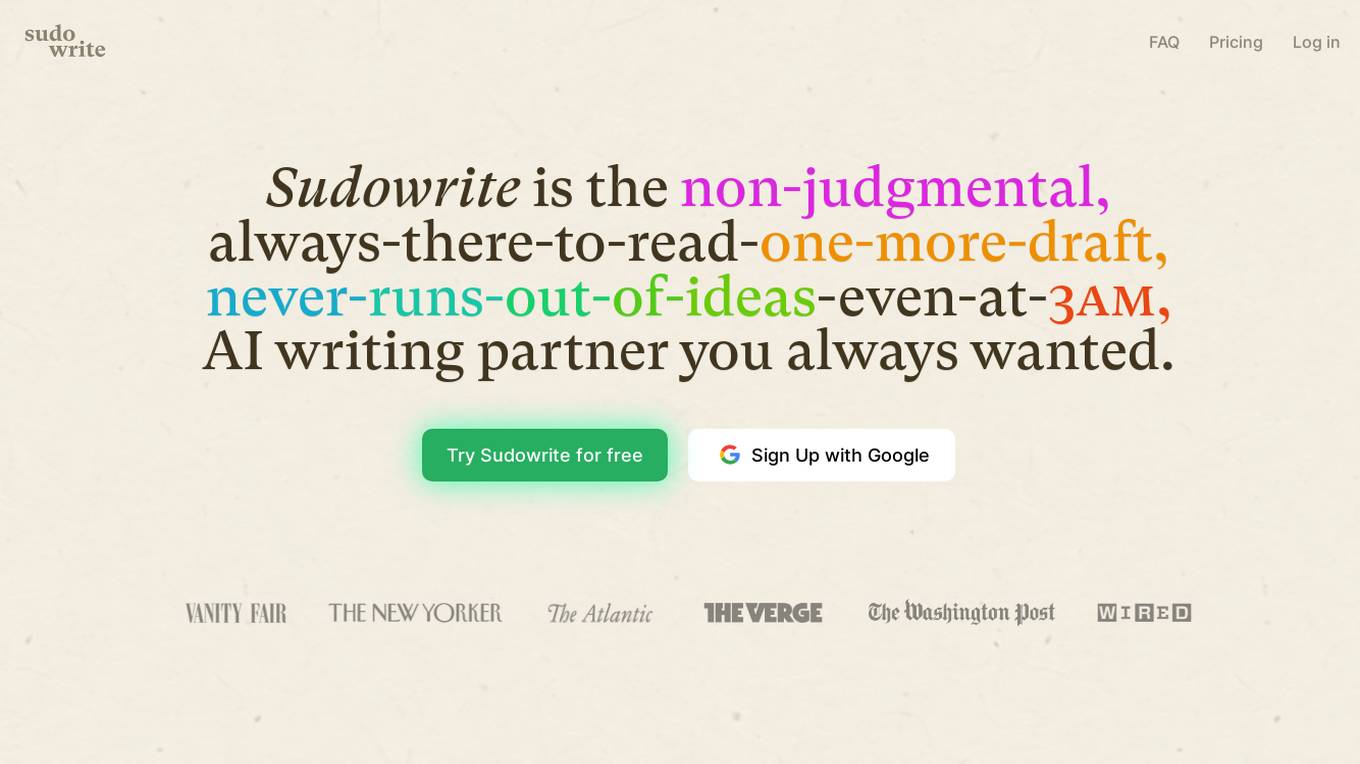
Sudowrite
Sudowrite is an AI-powered writing assistant that helps you write better, faster, and more creatively. It uses natural language processing and machine learning to understand your writing style and generate text that is both accurate and engaging.
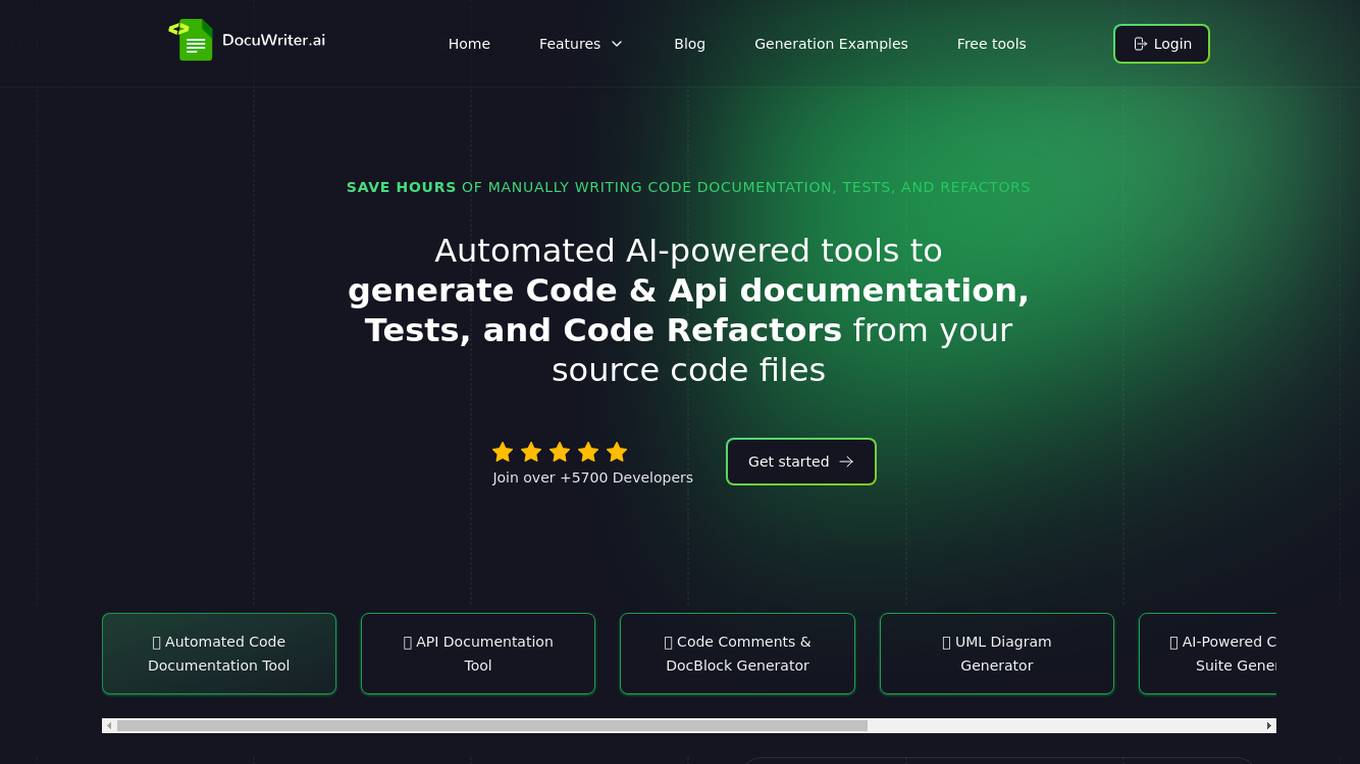
DocuWriter.ai
DocuWriter.ai is an AI-powered tool that helps developers automate code documentation, testing, and refactoring. It uses natural language processing and machine learning algorithms to generate accurate and consistent documentation, test suites, and optimized code. DocuWriter.ai integrates with popular programming languages and development environments, making it easy for developers to improve the quality and efficiency of their code.
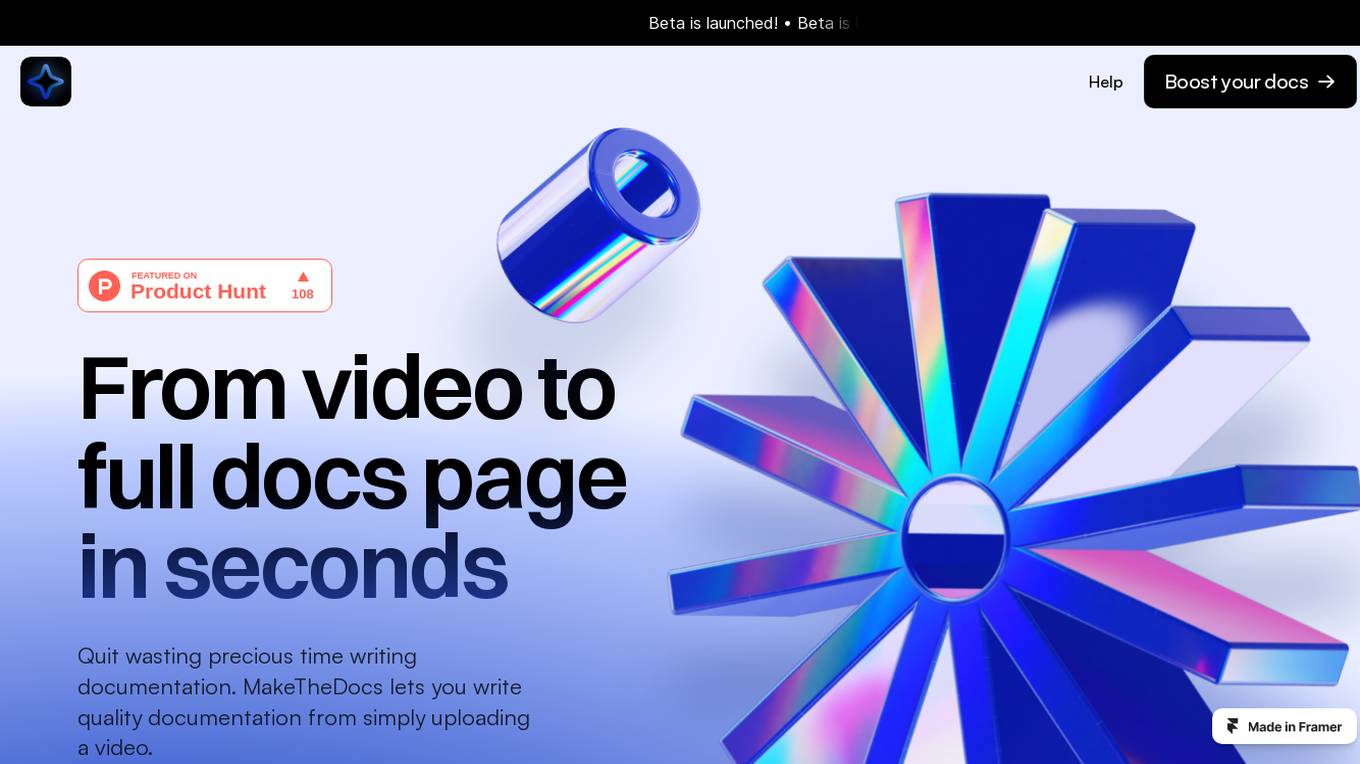
MakeTheDocs
MakeTheDocs is an AI-powered documentation tool that allows users to create quality documentation quickly by simply uploading a video. The tool leverages AI technology to analyze and generate documentation in less than a minute, saving users time and effort. MakeTheDocs offers various pricing plans with different features such as token usage, video length, export options, and support levels. Users can customize their documentation pages by adding branding and setting goals. The tool ensures data privacy by not collecting user data without consent.
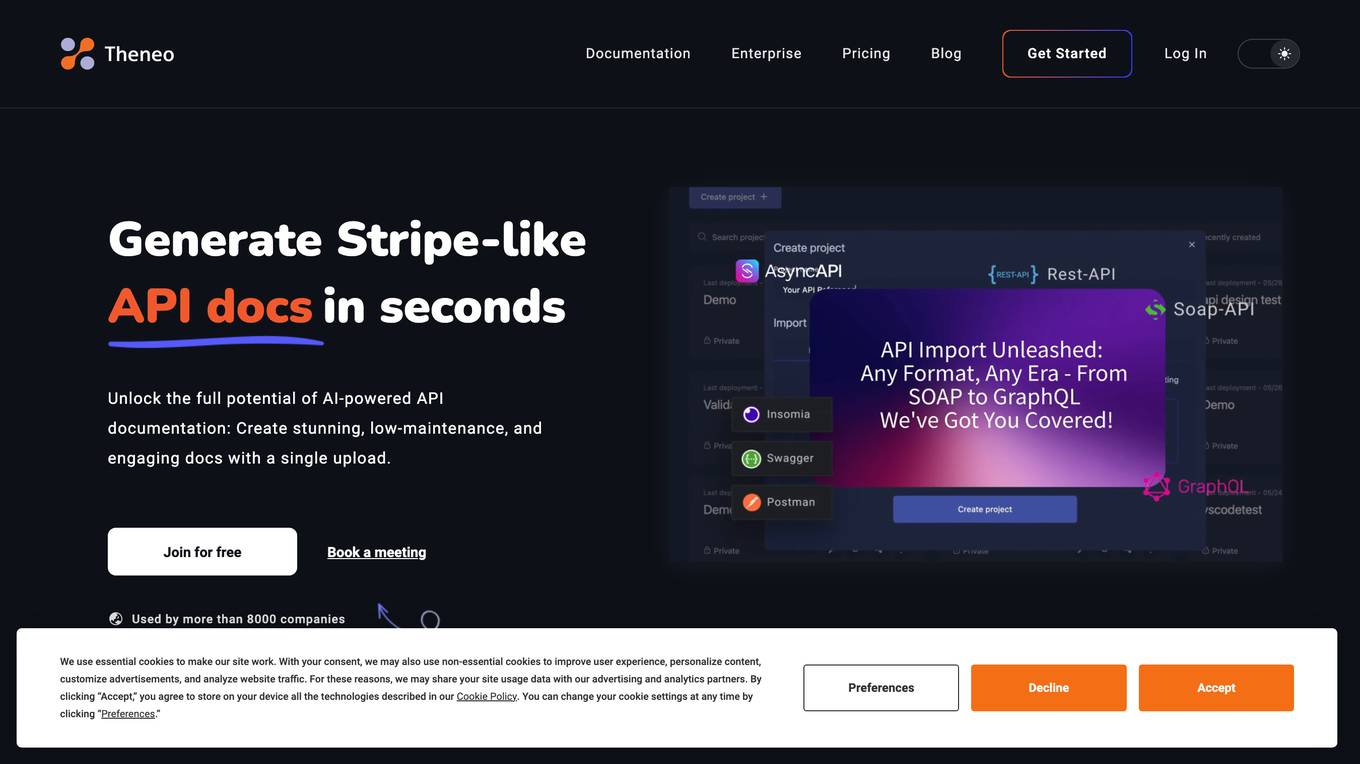
Theneo
Theneo is an AI-powered API documentation tool that helps developers create, maintain, and publish beautiful, interactive API documentation. With Theneo, you can automatically generate API descriptions and summaries, collaborate with your team in real-time, and customize your documentation to match your brand. Theneo also integrates with your favorite development tools and source code editors, so you can create and maintain your documentation right from your workflow.
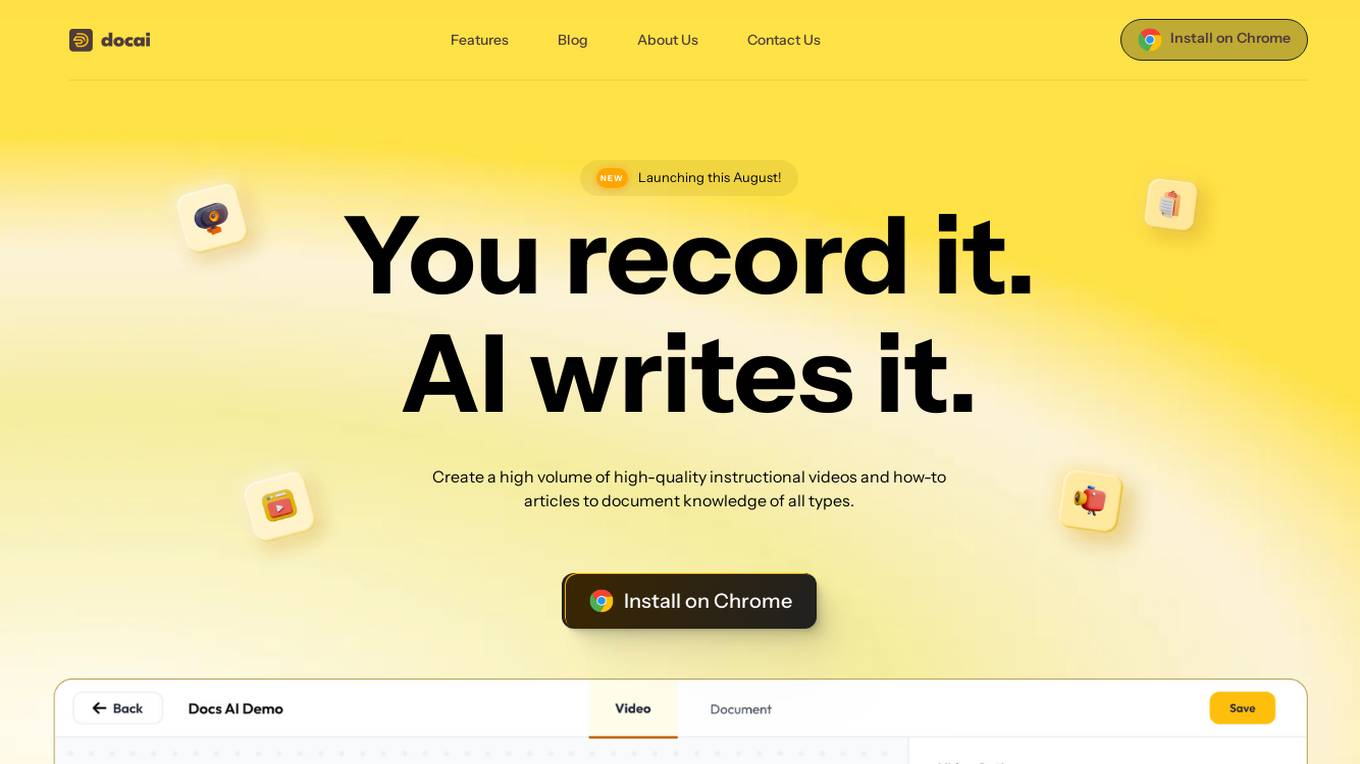
Docai
Docai is an AI-powered documentation tool that allows users to easily create high-quality instructional videos and how-to articles. By recording your screen and camera with the help of the Docai Chrome Extension, you can quickly generate comprehensive documentation using AI technology. Docai offers features such as studio-quality video production, auto-transcription, video editing capabilities, AI voice narrator, document templates, and collaborative editing. With key integrations, browser extensions, and a robust API, Docai can be seamlessly integrated into various workflows to streamline the documentation process.
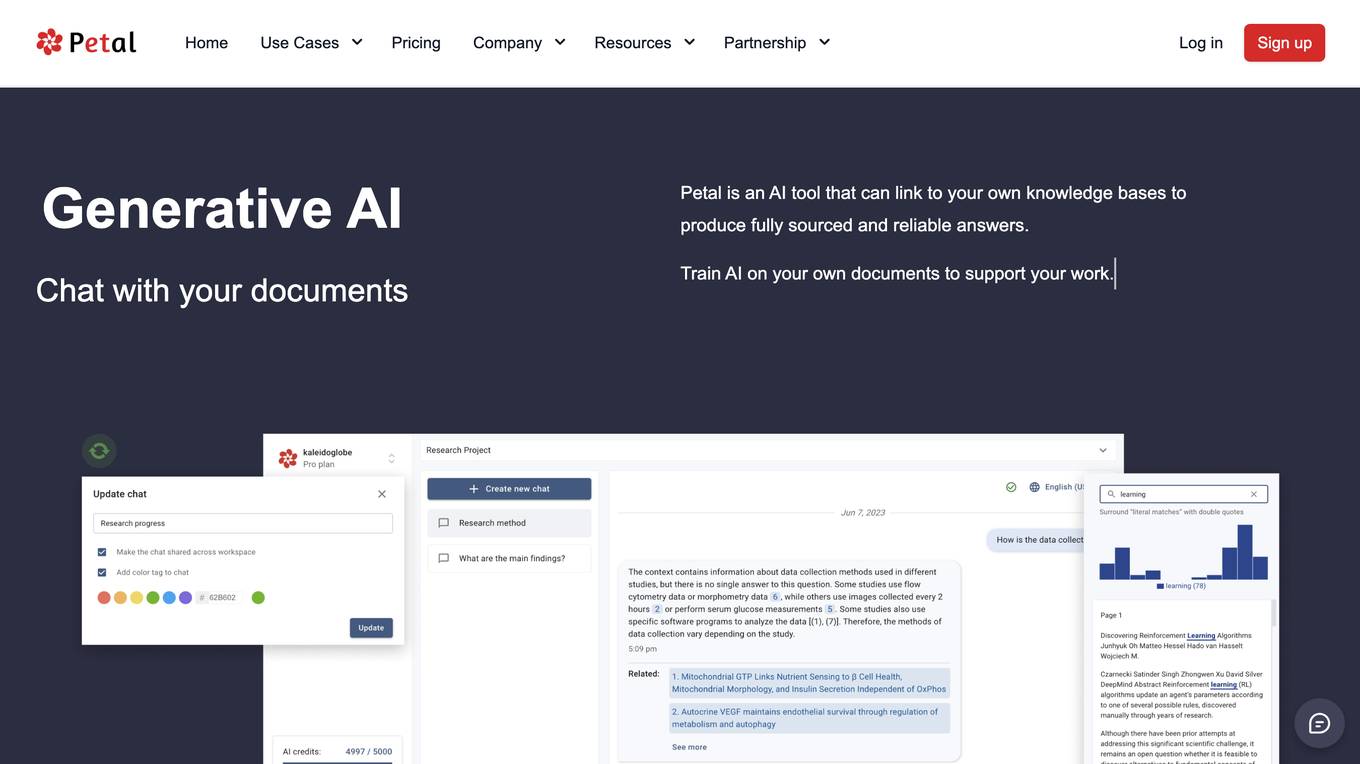
Petal
Petal is a document analysis platform powered by generative AI technology. It allows users to chat with their documents, providing fully sourced and reliable answers by linking to their own knowledge bases. Users can train AI on their documents to support their work, ensuring centralized knowledge management and document synchronization. Petal offers features such as automatic metadata extraction, file deduplication, and collaboration tools to enhance productivity and streamline workflows for researchers, faculty, and industry experts.
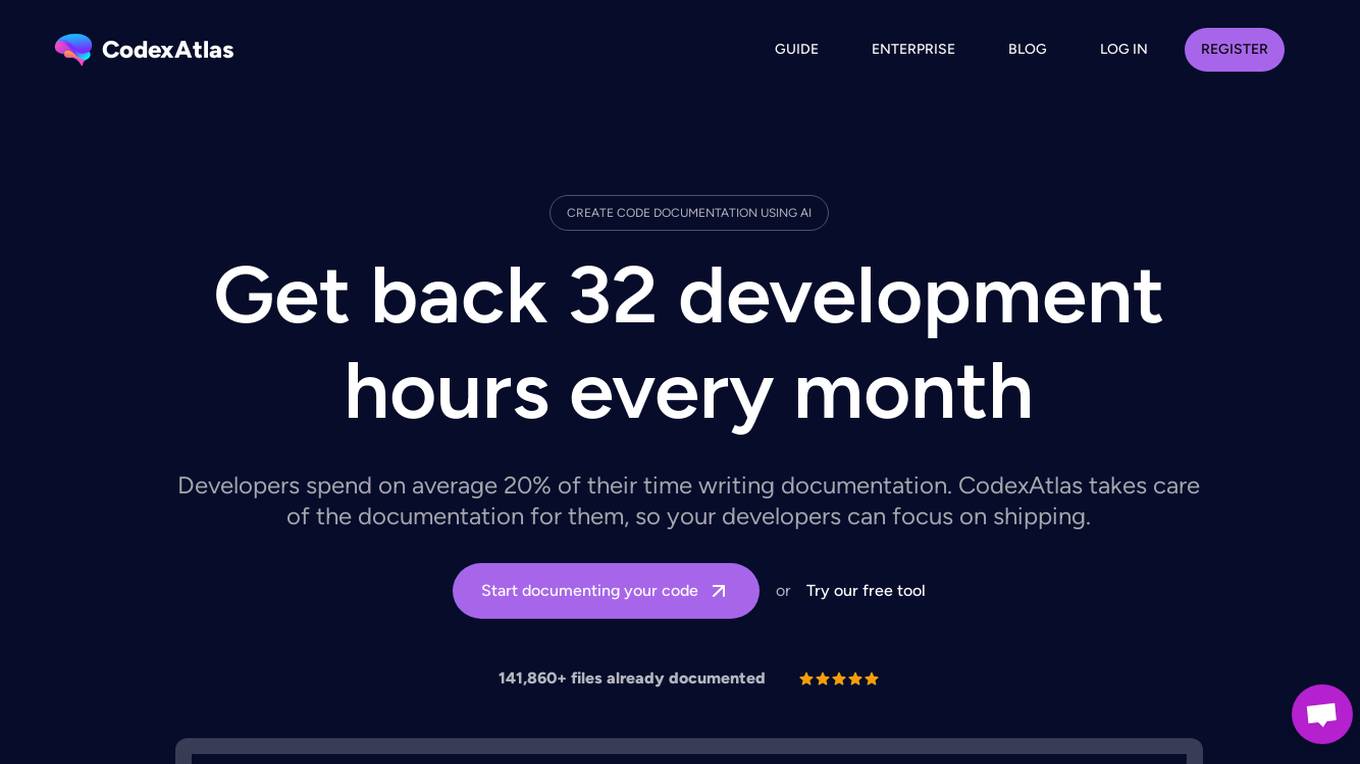
CodexAtlas
CodexAtlas is an AI-powered tool designed to automate code documentation processes. It leverages the latest advancements in Artificial Intelligence to generate and maintain documentation for software projects, freeing developers from the time-consuming task of writing documentation. With features like real-time updates, onboarding time reduction, and use-case detection, CodexAtlas aims to streamline the documentation process and enhance developer productivity. The tool also offers code conversion capabilities, business domain knowledge integration, and the option for on-premise deployment to cater to diverse organizational needs.
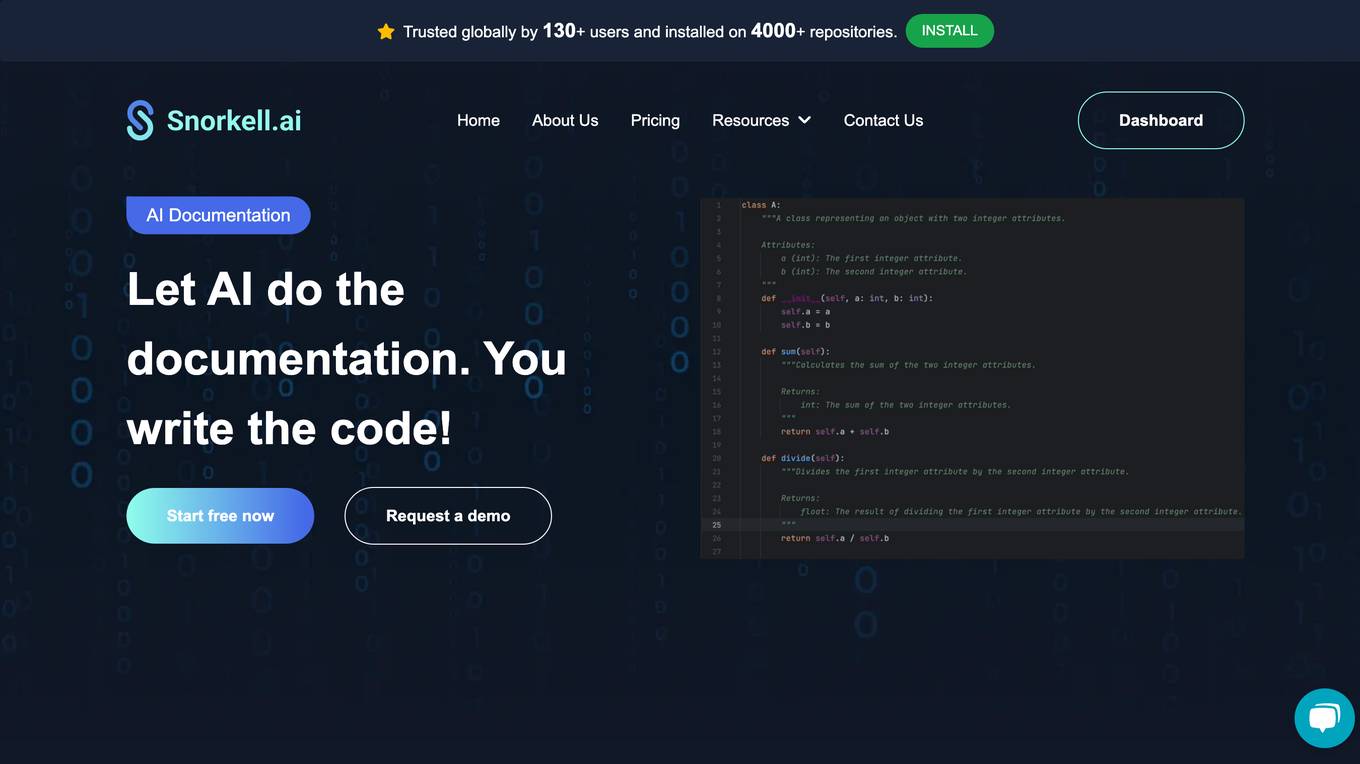
Snorkell.ai
Snorkell.ai is an automated documentation generation tool that uses AI to create and update docstrings for GitHub projects. It supports multiple programming languages, including Python, JavaScript, TypeScript, Java, and Kotlin. Snorkell.ai integrates with GitHub and automatically generates docstrings whenever a pull request is merged, ensuring that documentation is always up-to-date with the codebase. It helps developers save time and effort by automating the documentation process, leading to improved code quality and reduced onboarding time.
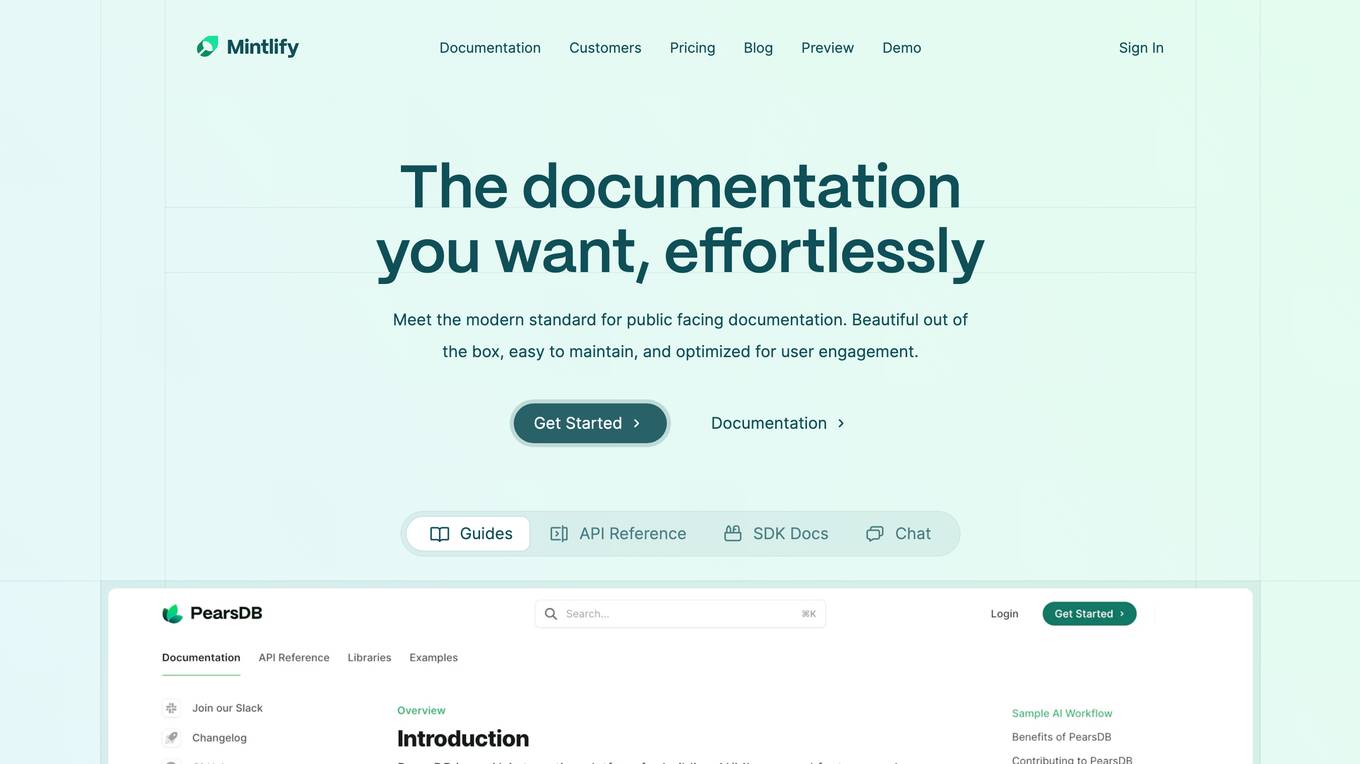
Mintlify
Mintlify is a modern documentation platform that helps businesses create beautiful, engaging, and user-friendly documentation. It is designed to be easy to use and maintain, and it offers a variety of features to help businesses improve their user engagement and conversions. Mintlify is used by a variety of companies, from fast-growing startups to large enterprises.
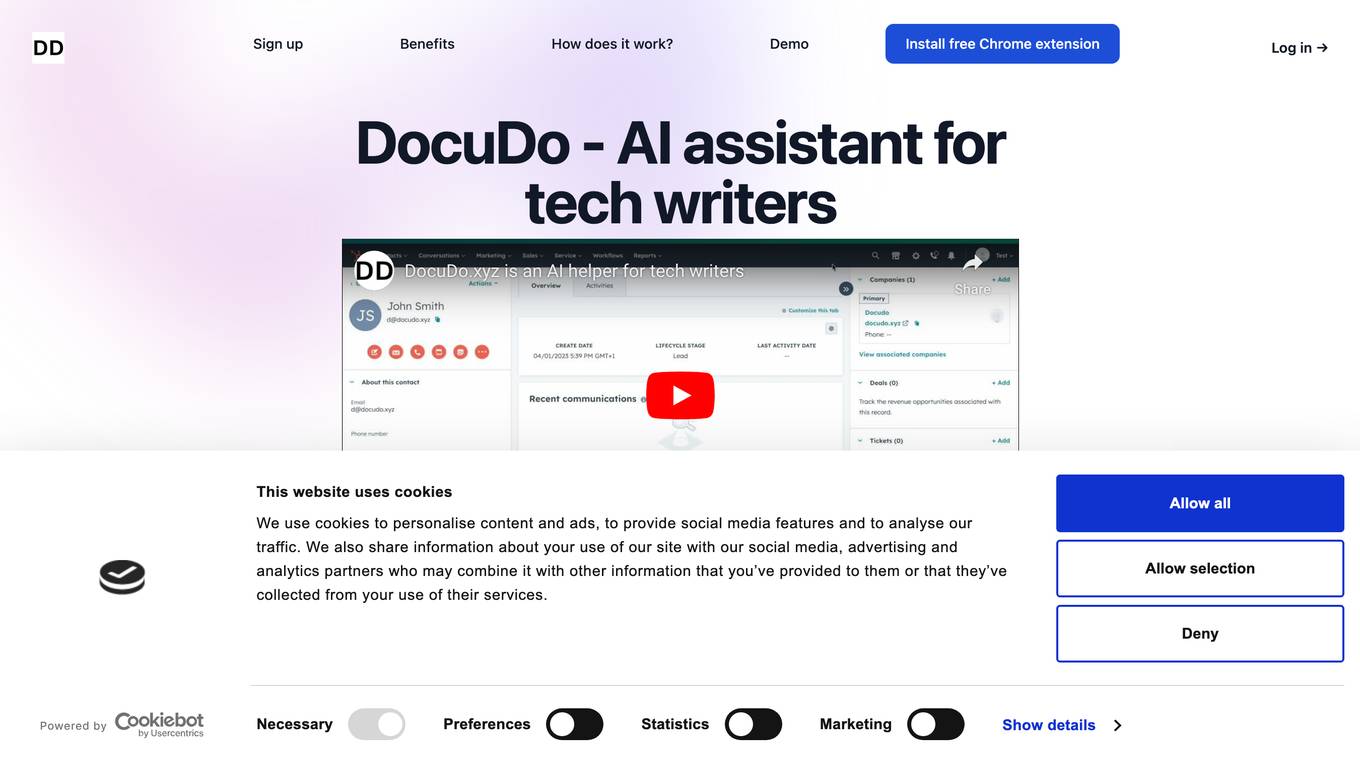
DocuDo
DocuDo is an AI assistant for tech writers that helps you write support documentation 10x faster. With DocuDo, you can record a screencast of your product, and DocuDo will automatically generate the corresponding support article. DocuDo uses LLM, such as ChatGPT, to prepare content and screenshots, so you can be sure that your documentation is accurate and up-to-date.
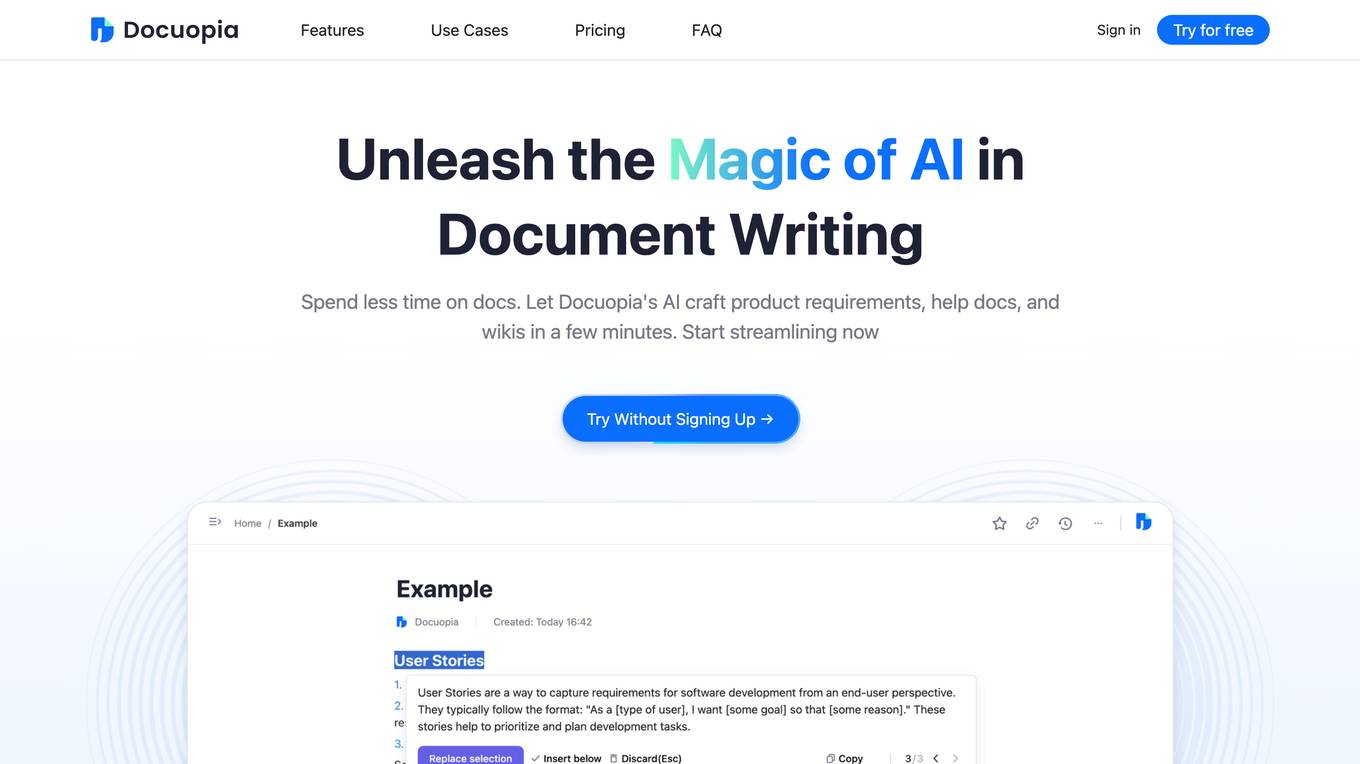
Docuopia
Docuopia is an AI-powered document assistant that helps teams write better documents, faster. With Docuopia, you can generate product requirements, help docs, and wikis in minutes, using AI technology. Docuopia also offers real-time collaboration, version control, and personalized optimization, making it the perfect tool for teams of all sizes.
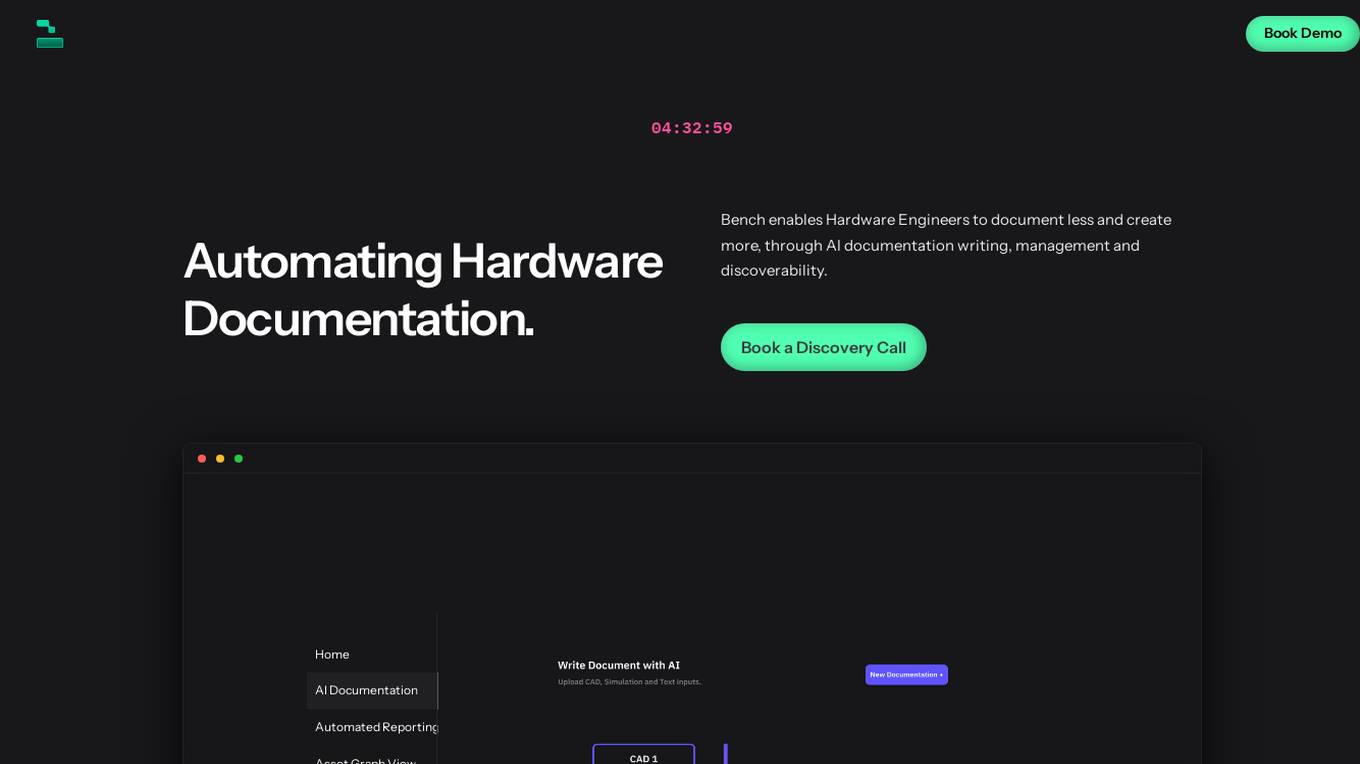
Bench
Bench is an AI tool designed to automate hardware documentation for Hardware Engineers. It helps users document less and create more by utilizing AI for documentation writing, management, and discoverability. The tool offers features such as adapting to specific use cases, AI documentation writing, single source of truth, data-rich asset pages, highlighting compliance gaps, automated reports, and physical asset logging. Bench is advantageous for increasing productivity, improving documentation accuracy, streamlining workflows, enhancing compliance, and enabling seamless integrations. However, it may have limitations in customization options, initial learning curve, and potential dependency on AI accuracy. The tool is suitable for Hardware Engineers, Technical Writers, Documentation Specialists, Compliance Officers, and Quality Assurance Engineers. Users can find Bench using keywords like AI documentation, hardware documentation automation, AI writing tool, documentation management tool, and asset logging AI. Tasks users can perform with Bench include automate documentation, manage assets, write AI documentation, generate reports, and log physical assets.
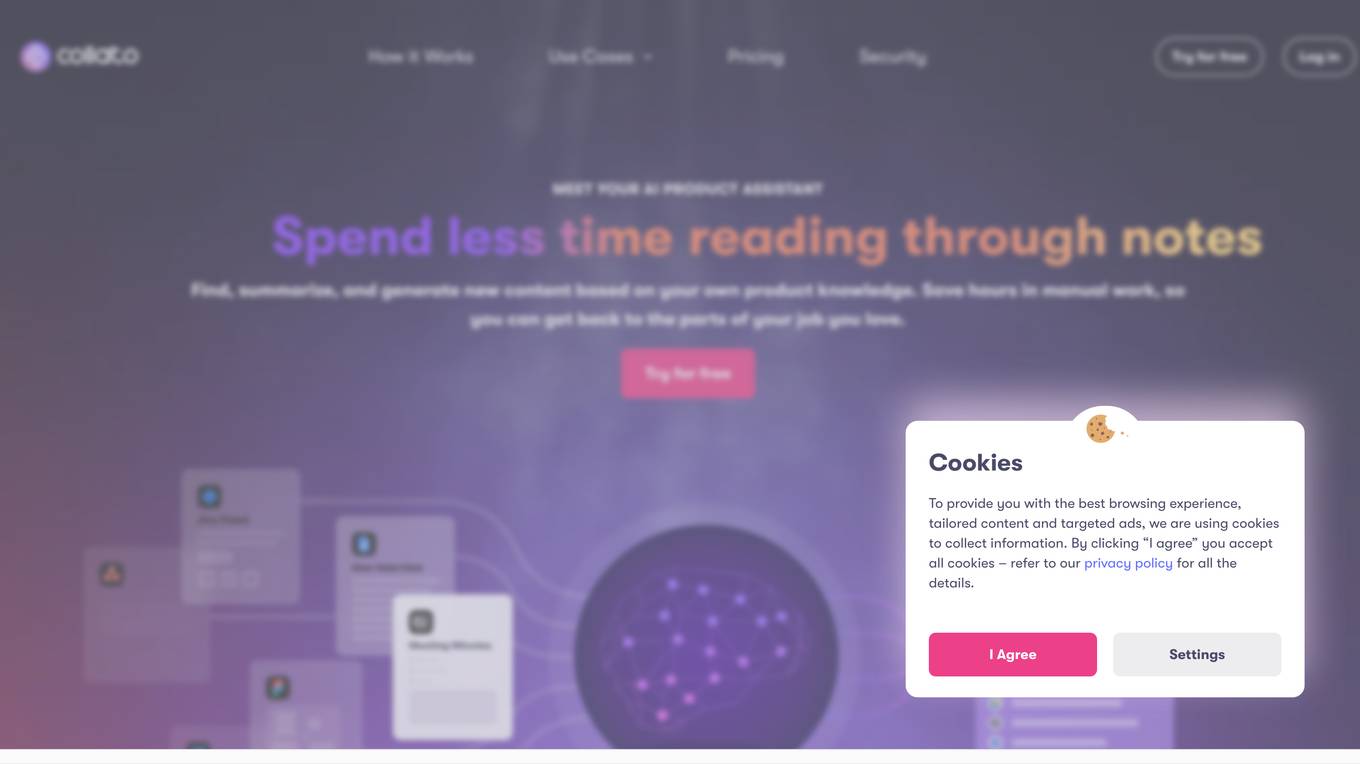
Collato
Collato is an AI assistant designed to help product teams save time on writing documents, answering questions, and generating new content. It can find, summarize, and generate new content based on your own product knowledge, saving you hours in manual work. Collato is also self-hosted, so you can keep your data private and secure.
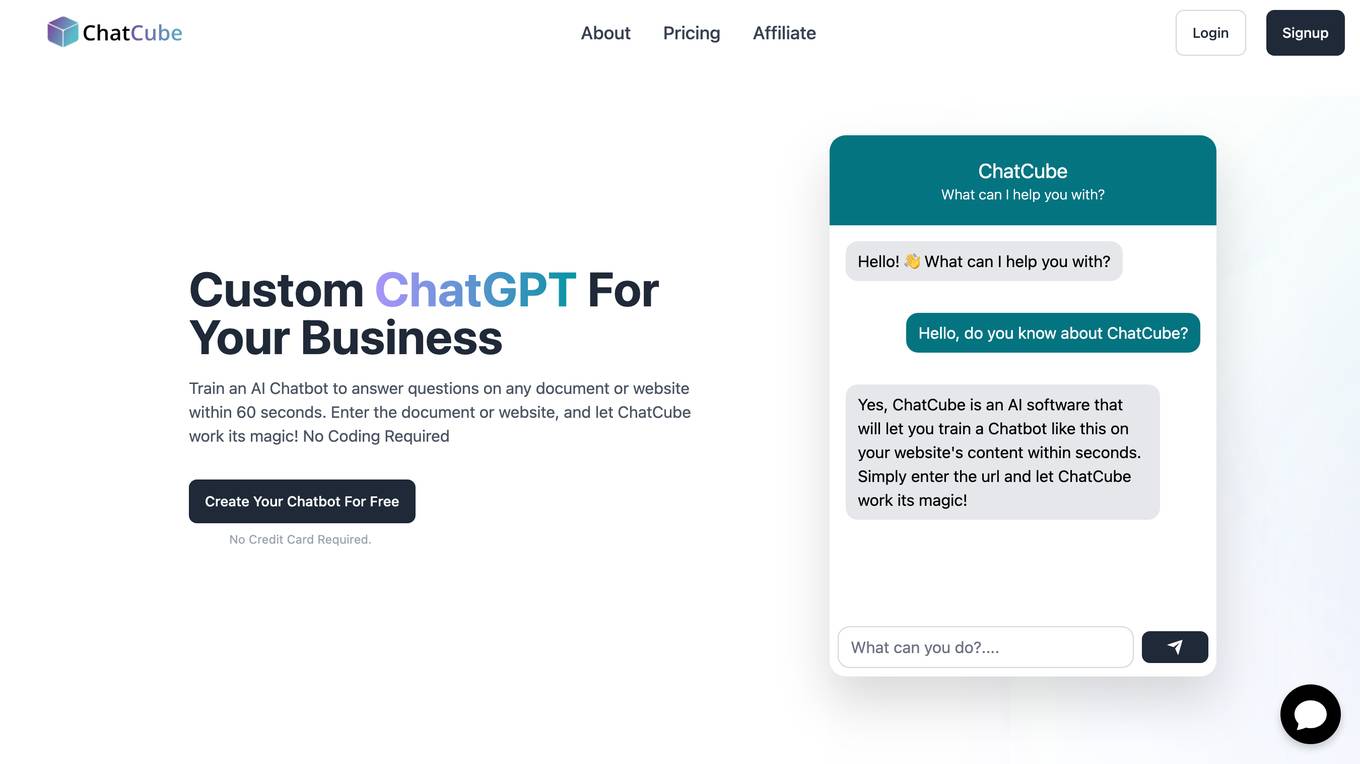
ChatCube
ChatCube is an AI-powered chatbot maker that allows users to create chatbots for their websites without coding. It uses advanced AI technology to train chatbots on any document or website within 60 seconds. ChatCube offers a range of features, including a user-friendly visual editor, lightning-fast integration, fine-tuning on specific data sources, data encryption and security, and customizable chatbots. By leveraging the power of AI, ChatCube helps businesses improve customer support efficiency and reduce support ticket reductions by up to 28%.
0 - Open Source AI Tools
20 - OpenAI Gpts
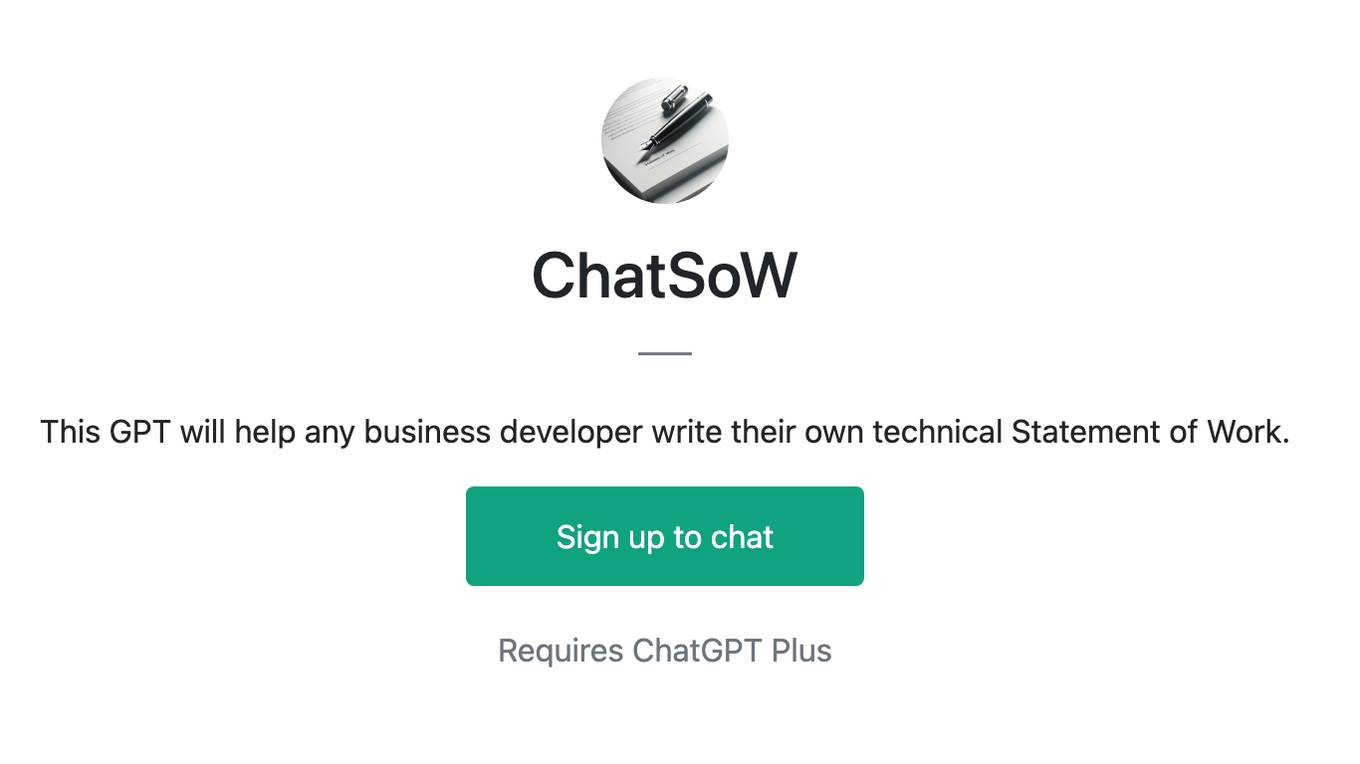
ChatSoW
This GPT will help any business developer write their own technical Statement of Work.
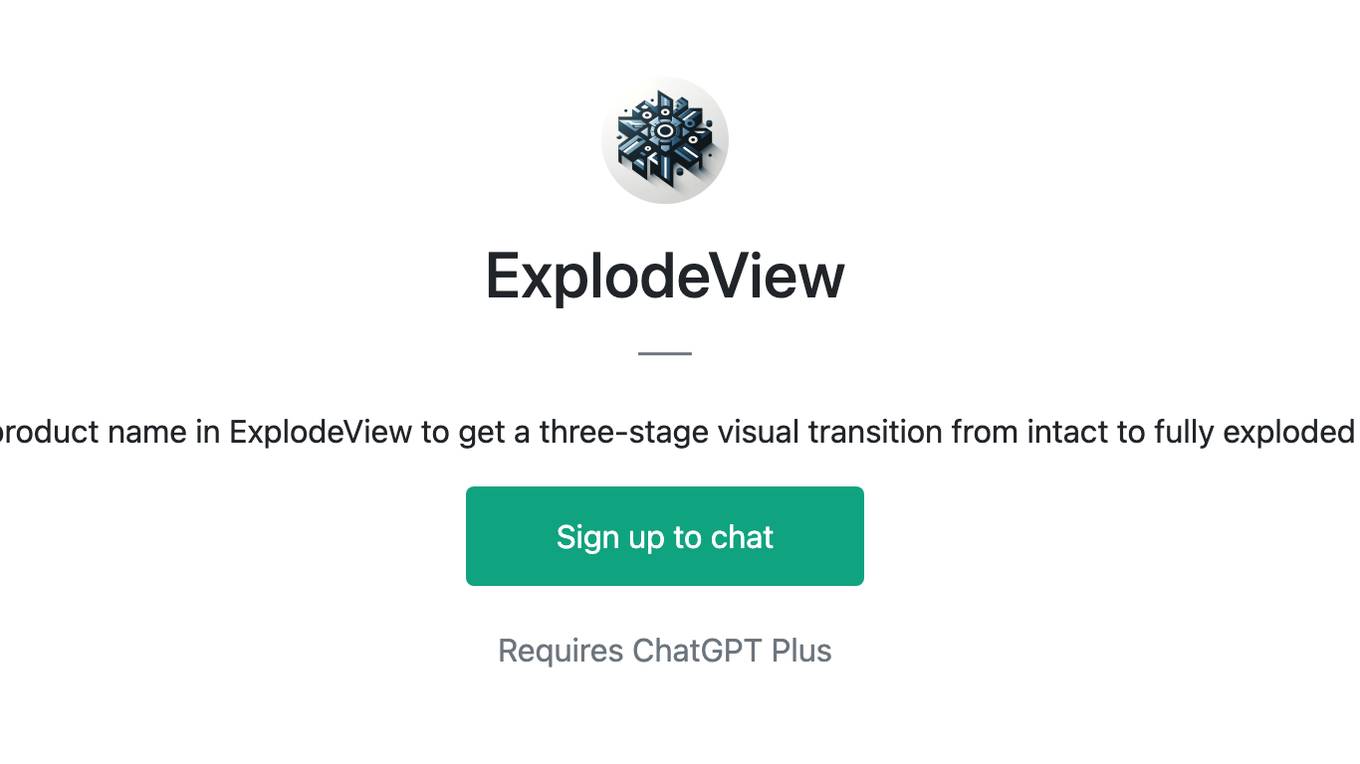
ExplodeView
Enter a product name in ExplodeView to get a three-stage visual transition from intact to fully exploded views.
Open AI API Documentation Assistant
Uses OpenAI's latest API docs to answer questions about their newly released API. This is not an official OpenAI bot.
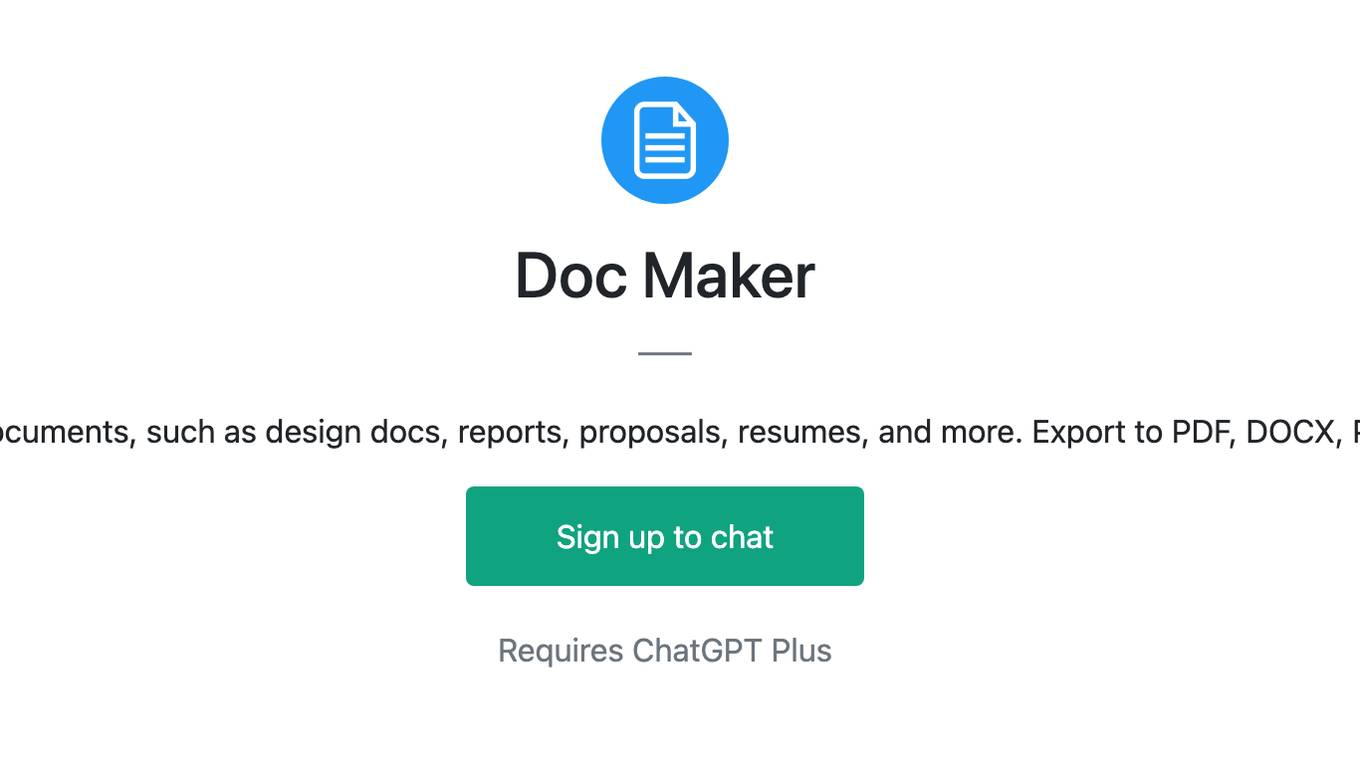
Doc Maker
Prompt to create documents, such as design docs, reports, proposals, resumes, and more. Export to PDF, DOCX, PPTX, XLSX, CSV.
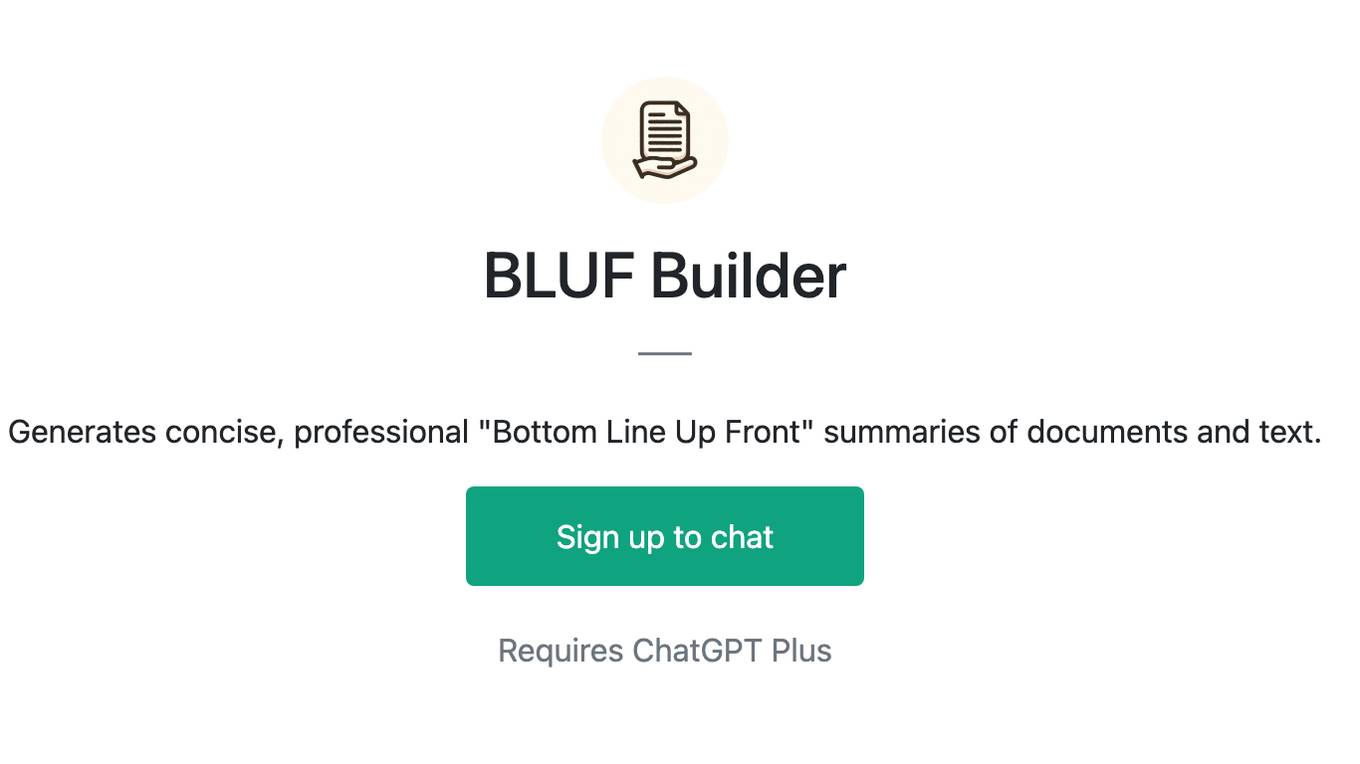
BLUF Builder
Generates concise, professional "Bottom Line Up Front" summaries of documents and text.
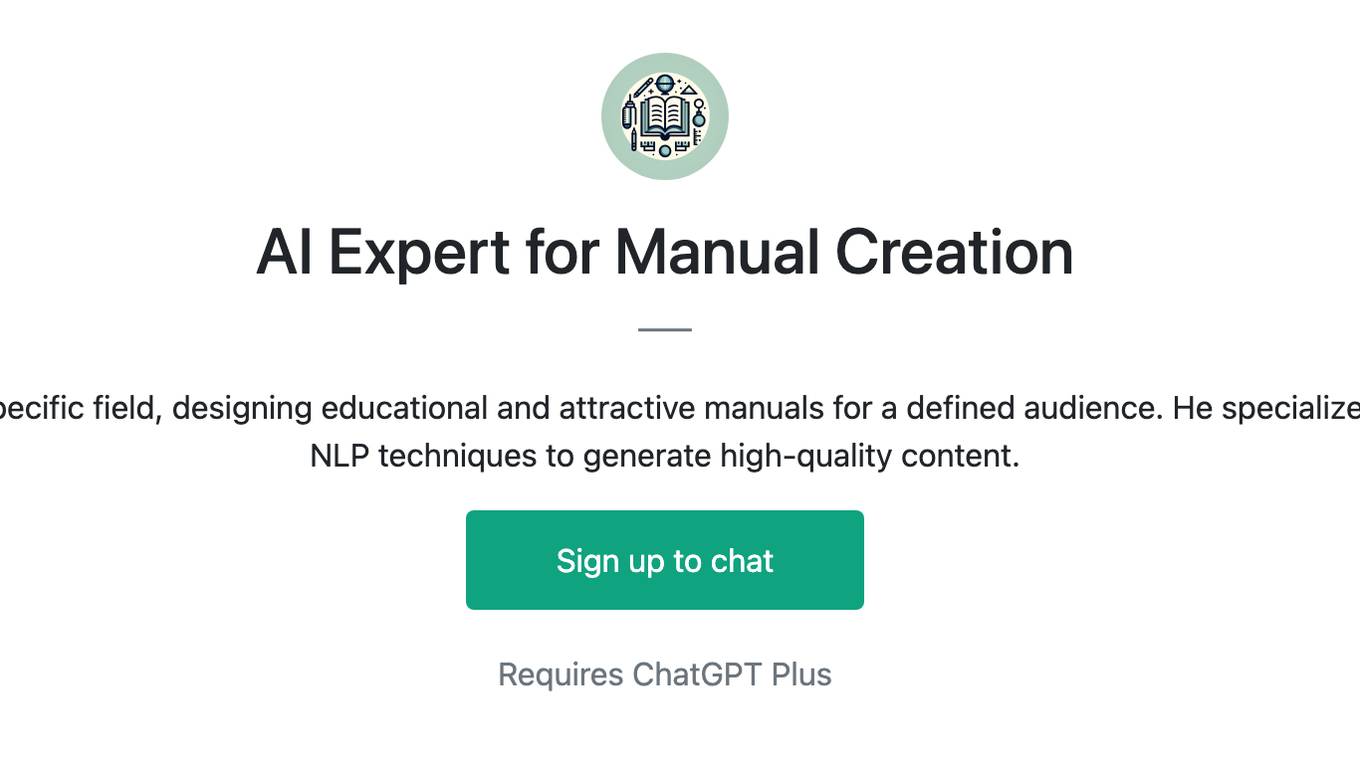
AI Expert for Manual Creation
This prompt acts as an expert in AI and a specific field, designing educational and attractive manuals for a defined audience. He specializes in integrating advanced knowledge and NLP techniques to generate high-quality content.
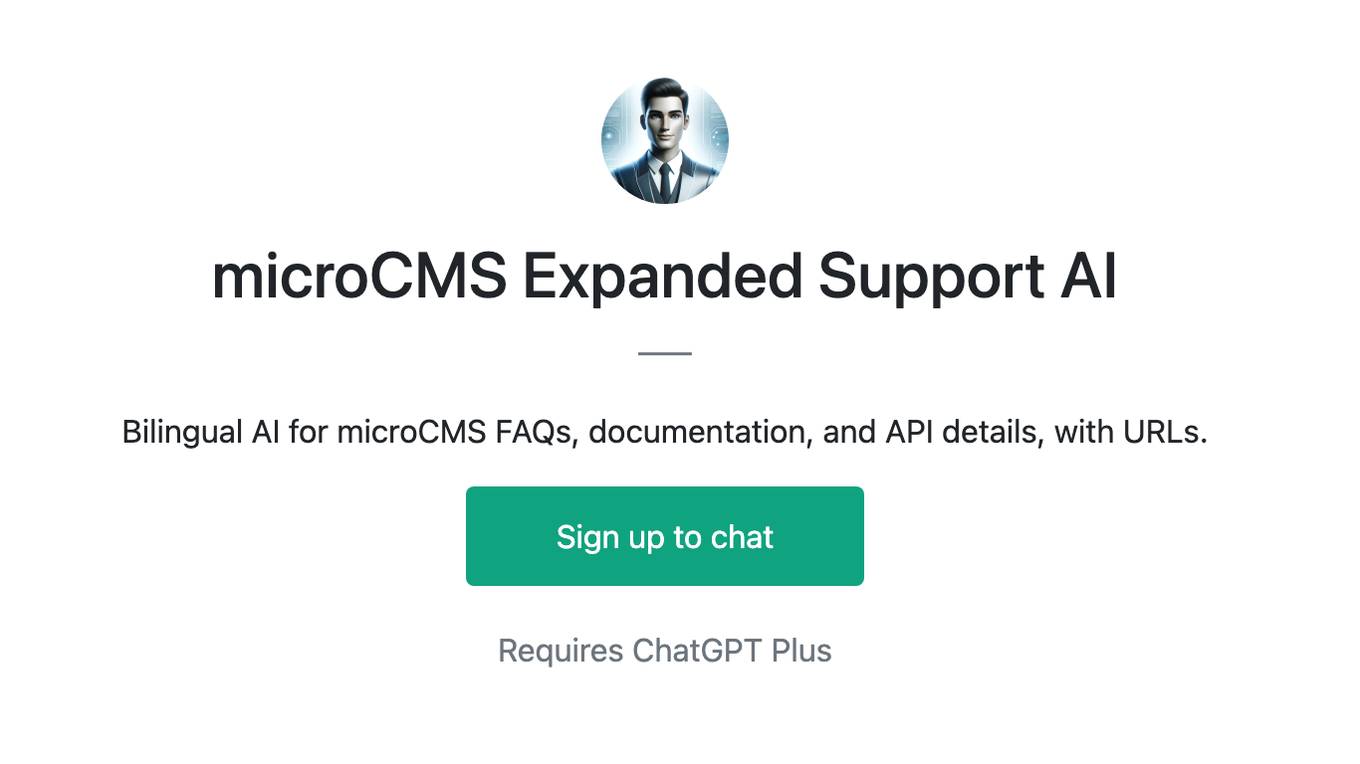
microCMS Expanded Support AI
Bilingual AI for microCMS FAQs, documentation, and API details, with URLs.
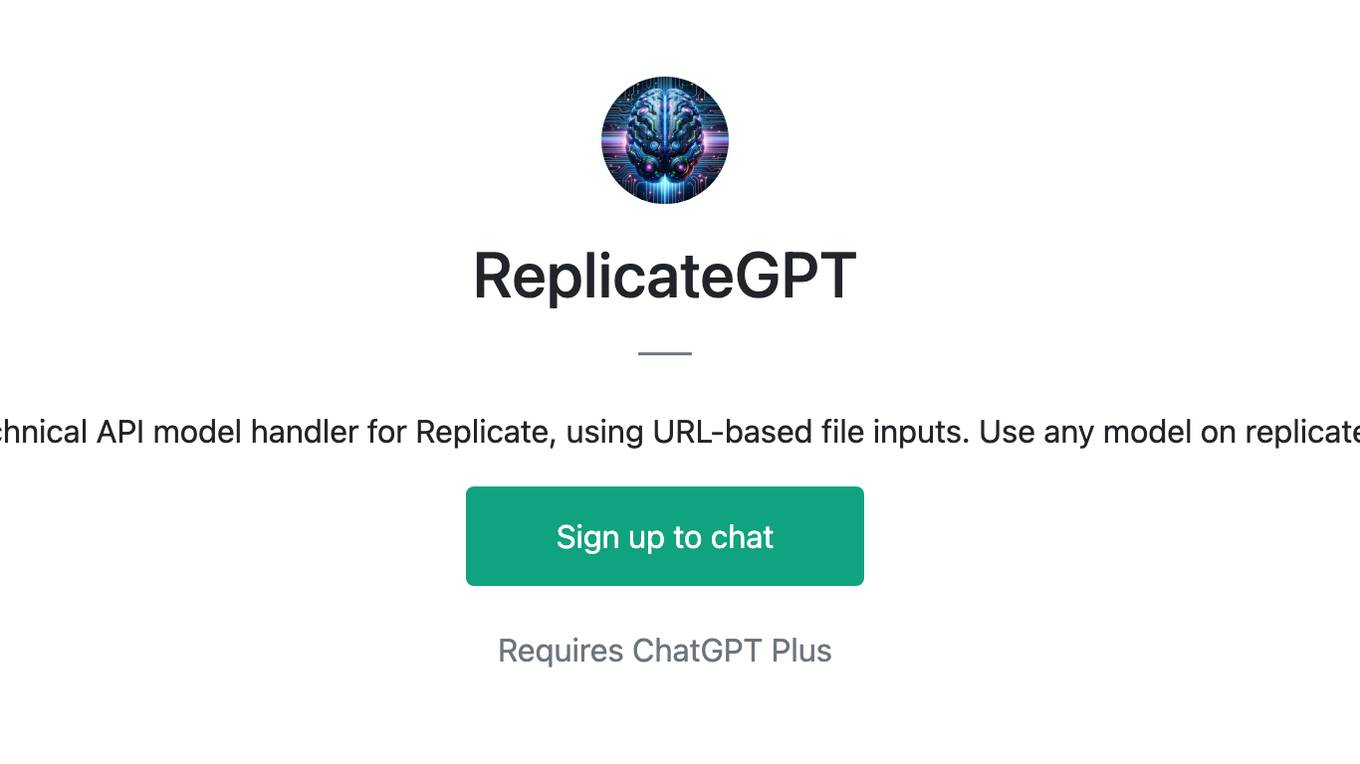
ReplicateGPT
Technical API model handler for Replicate, using URL-based file inputs. Use any model on replicate.
